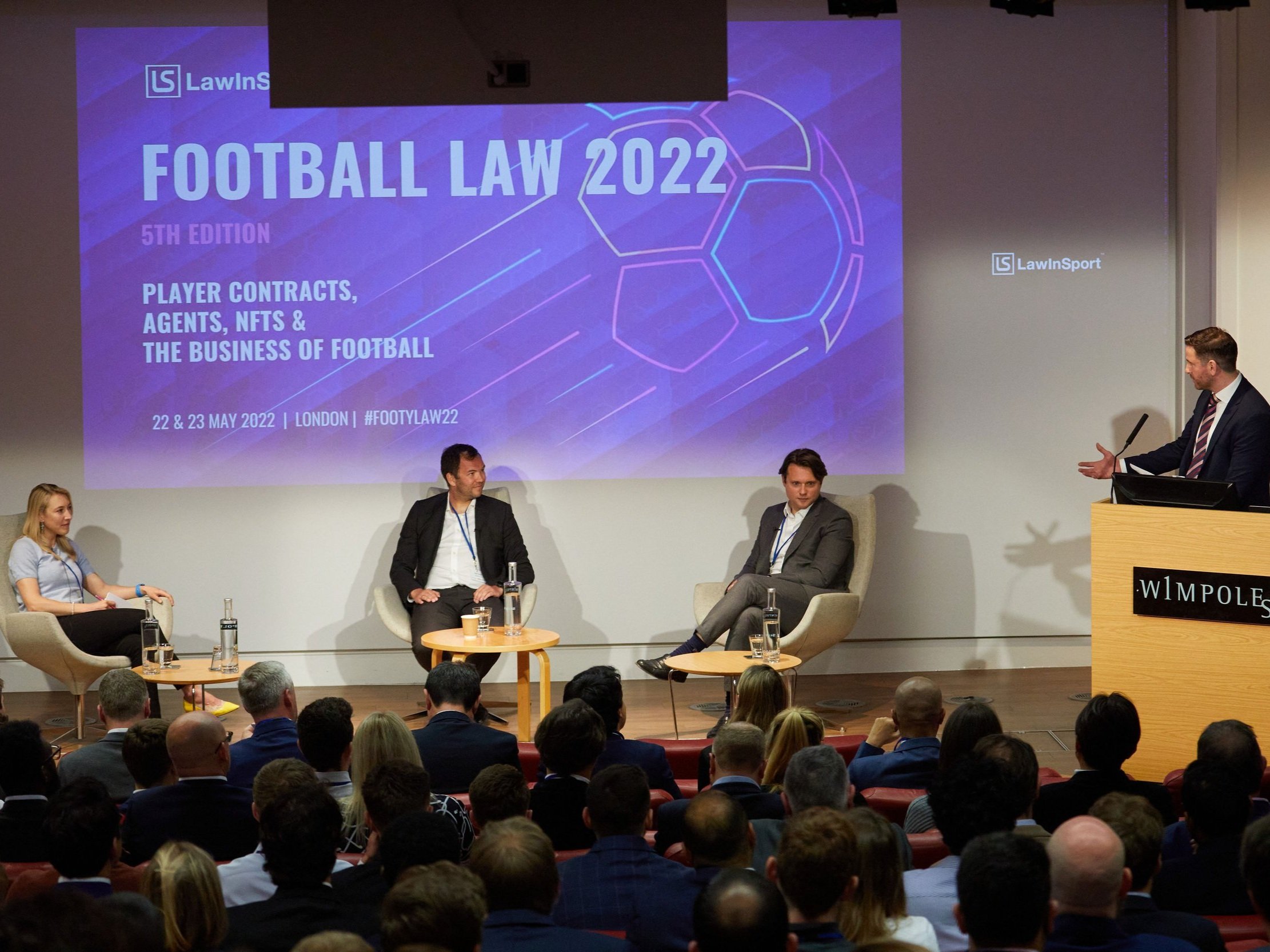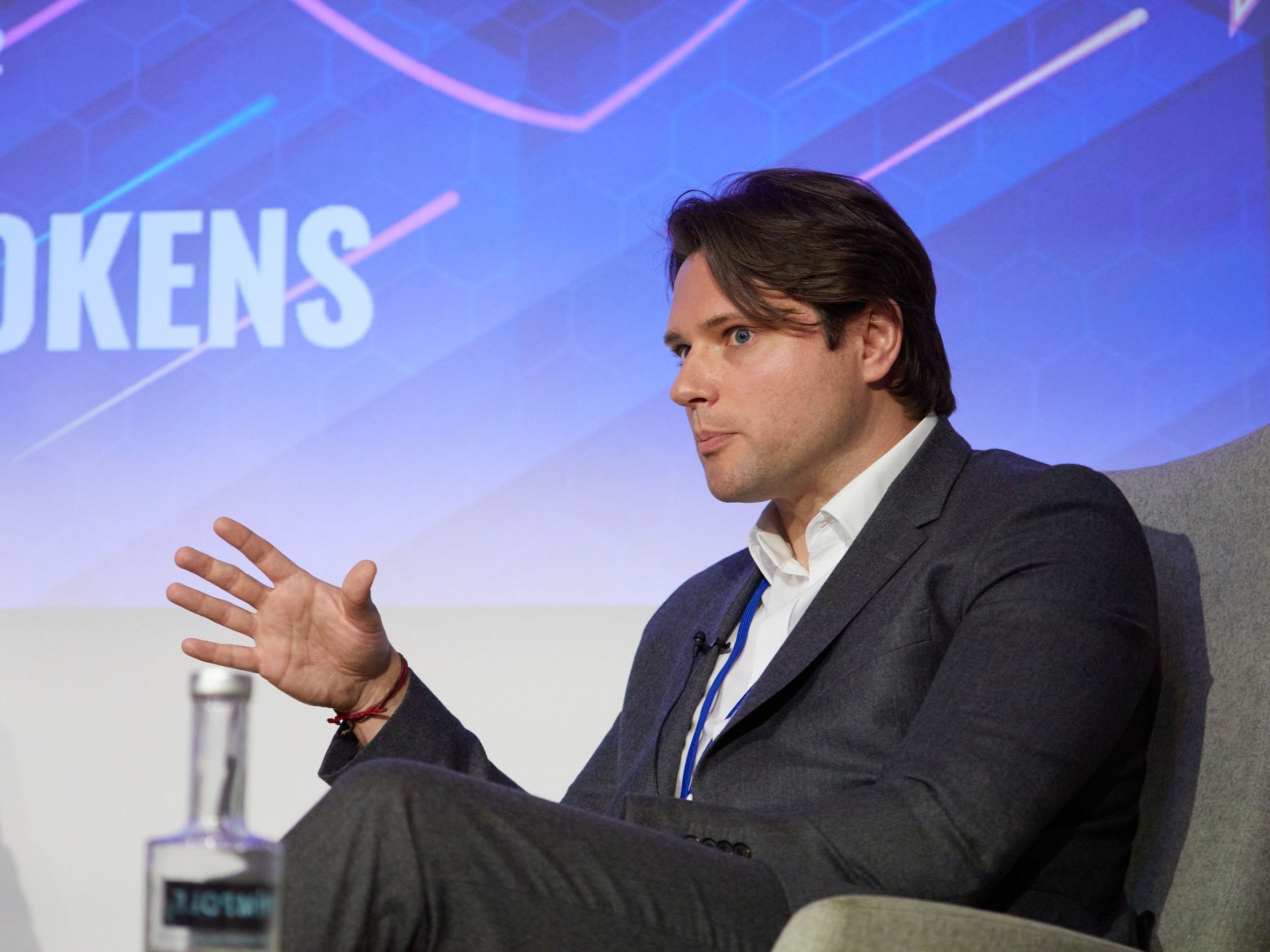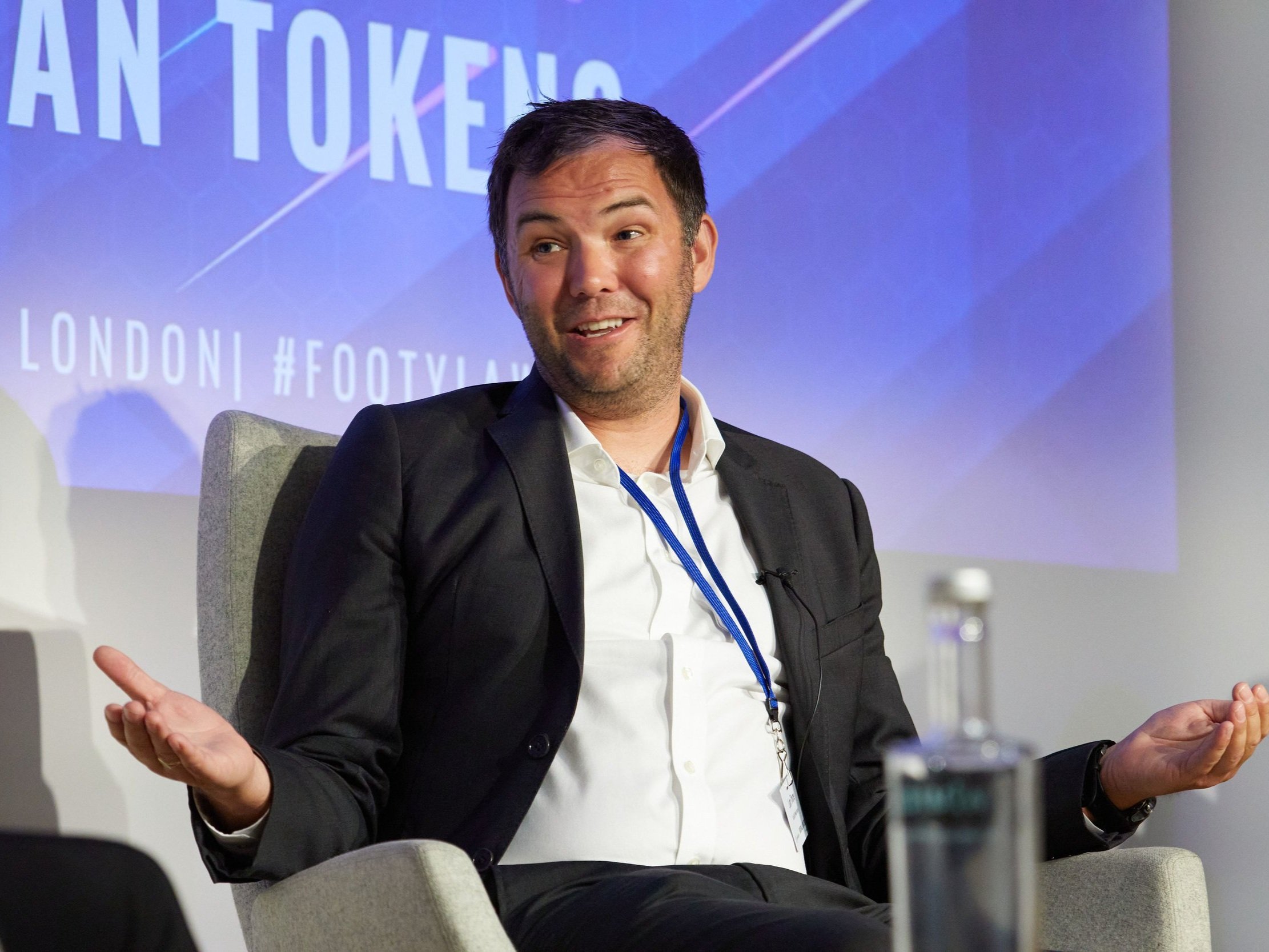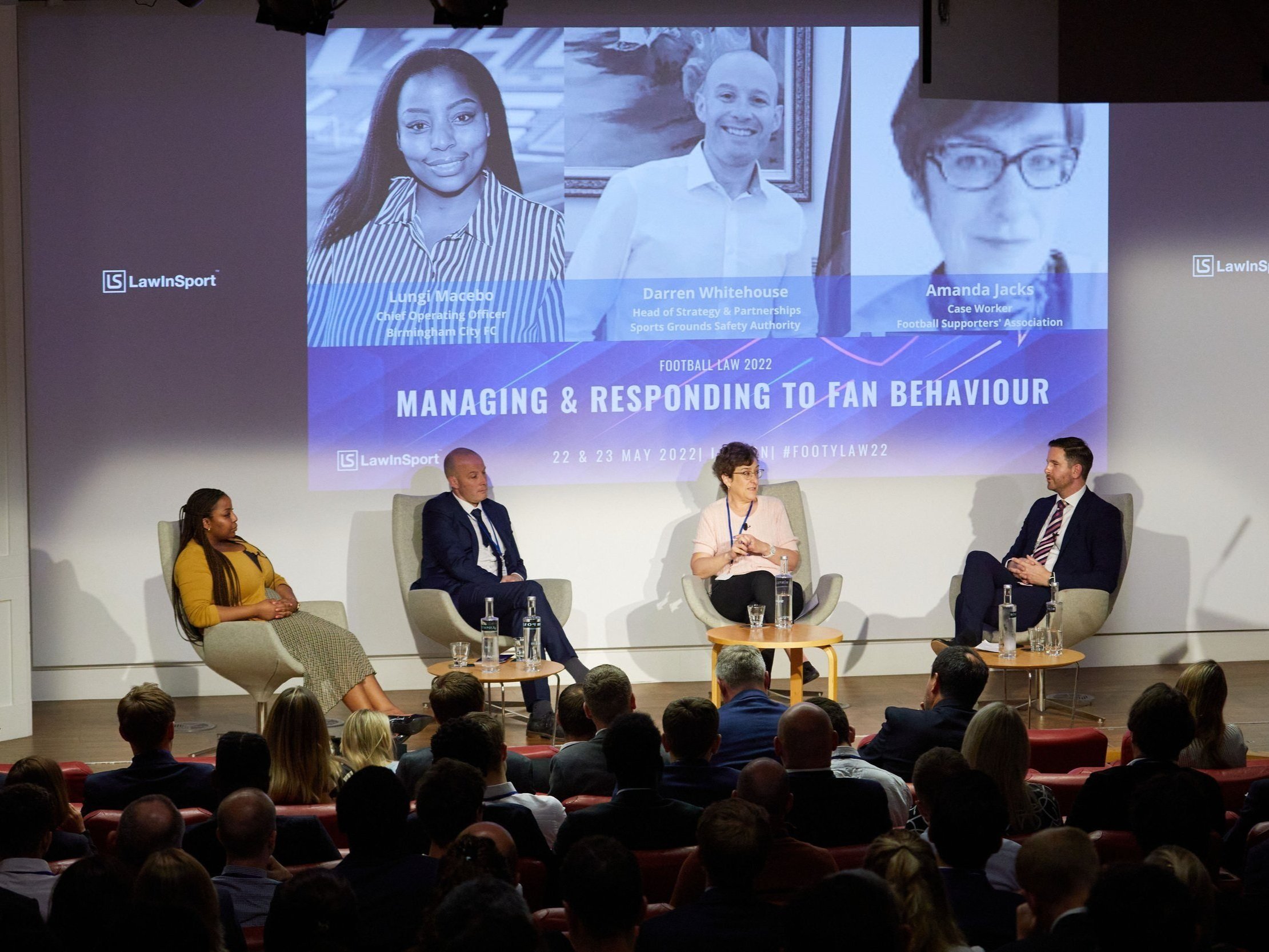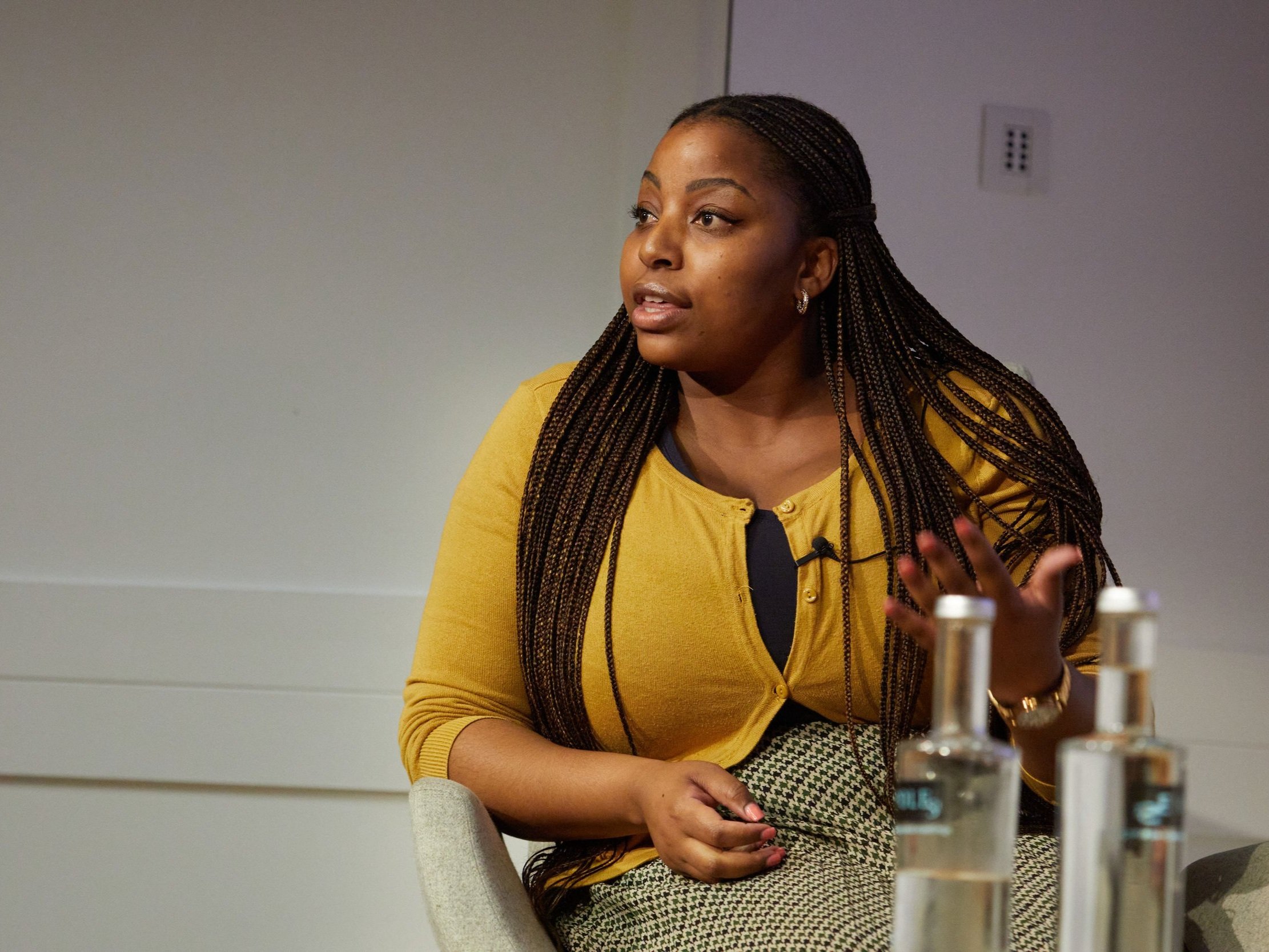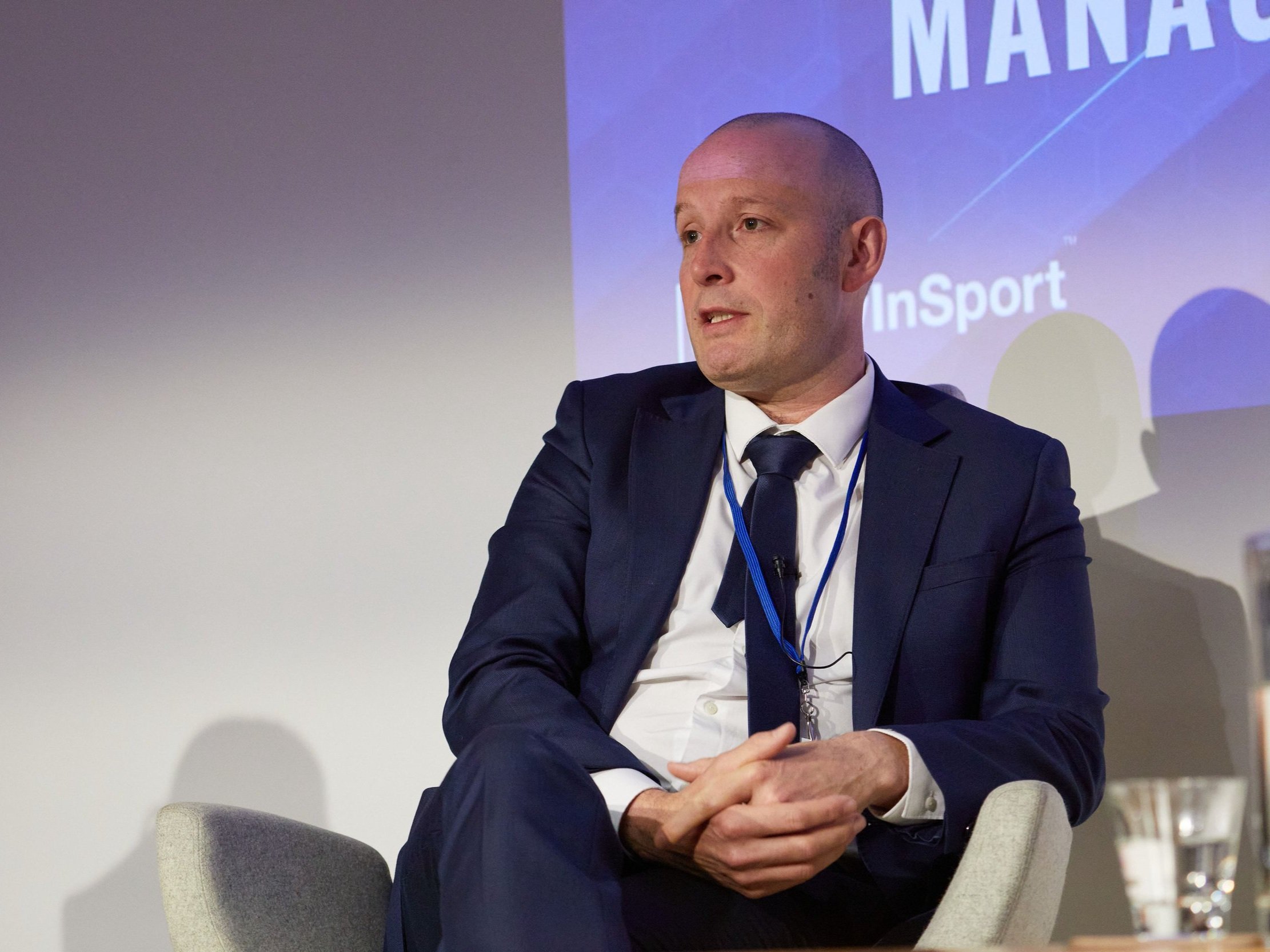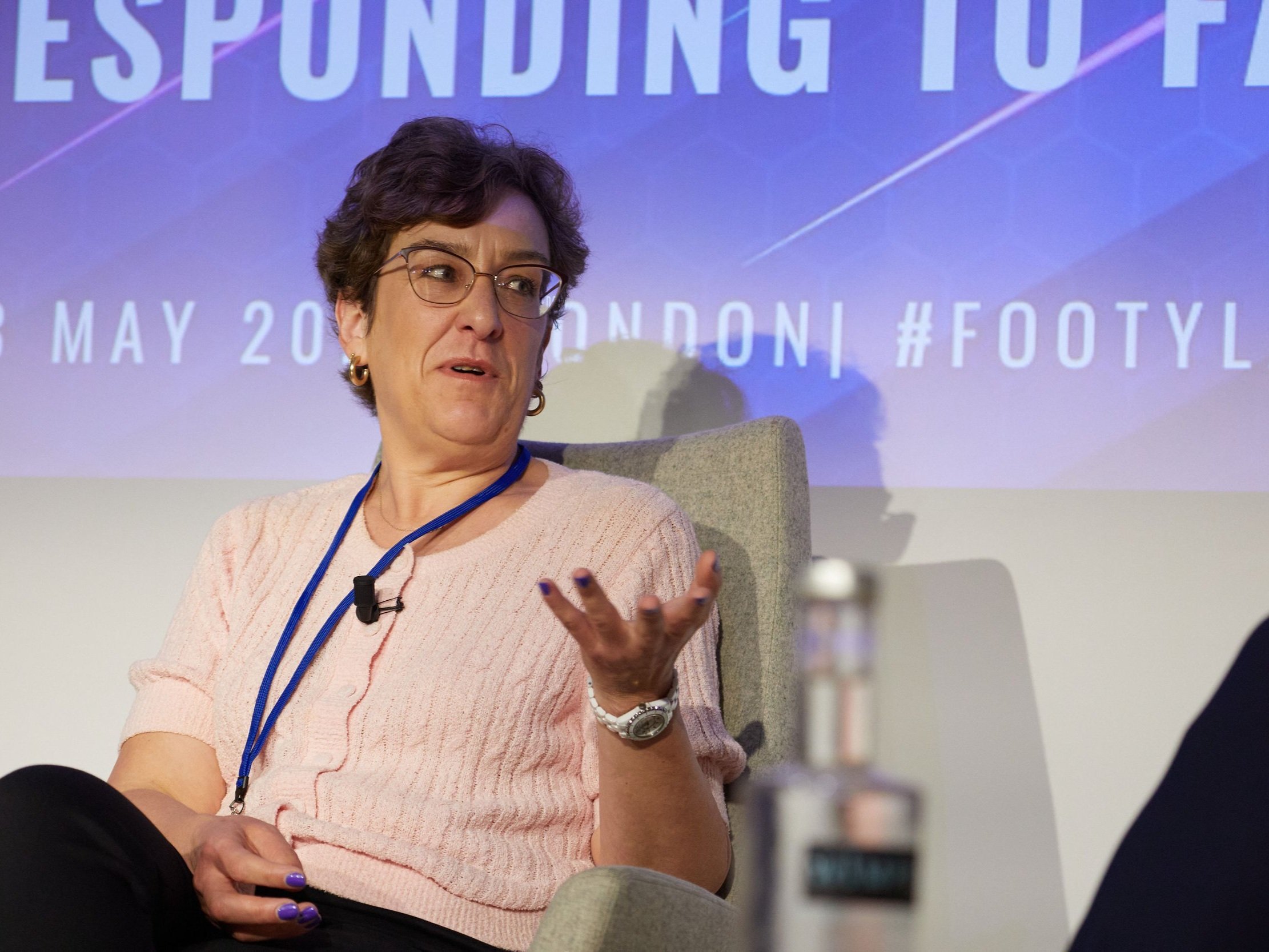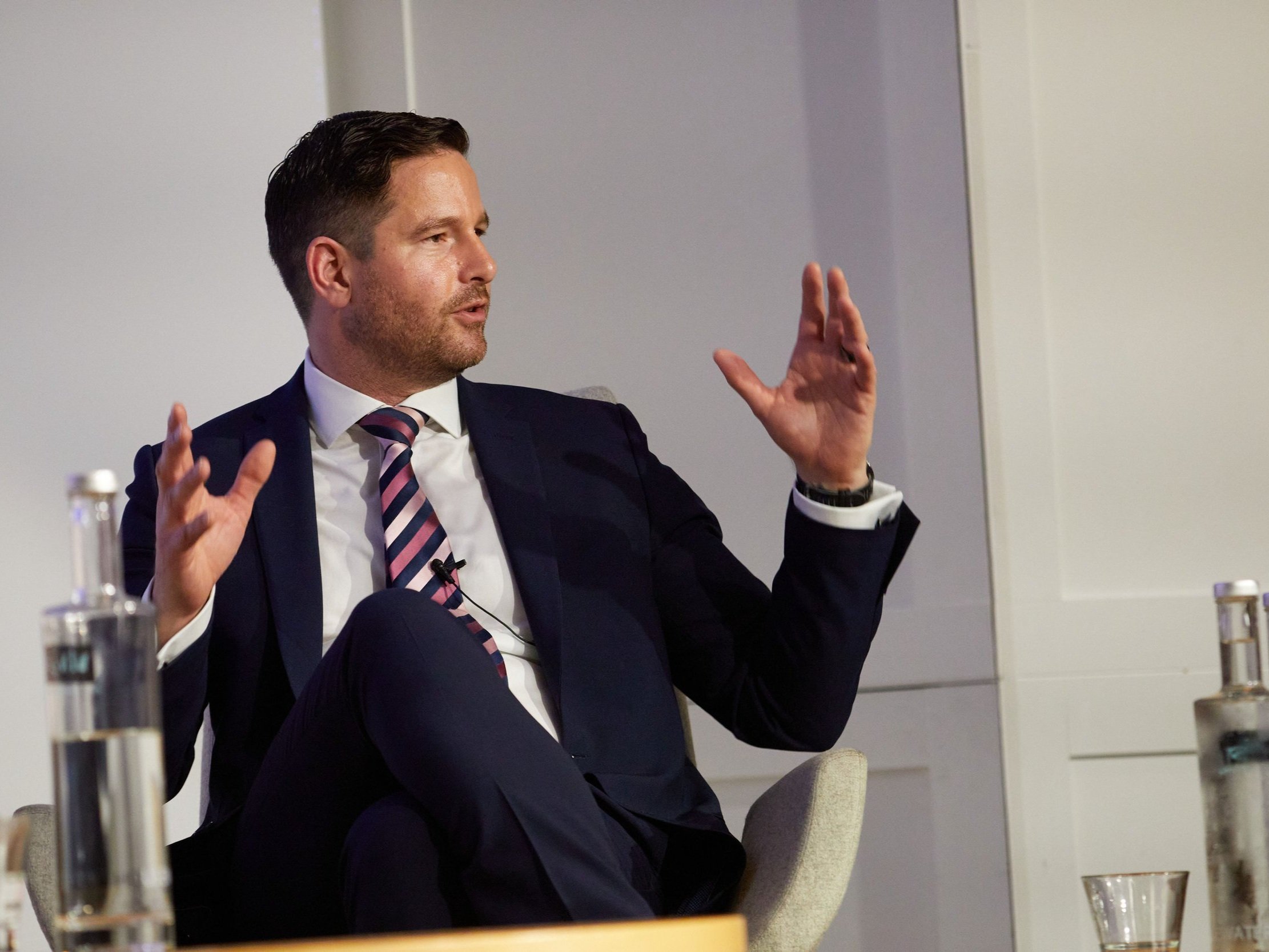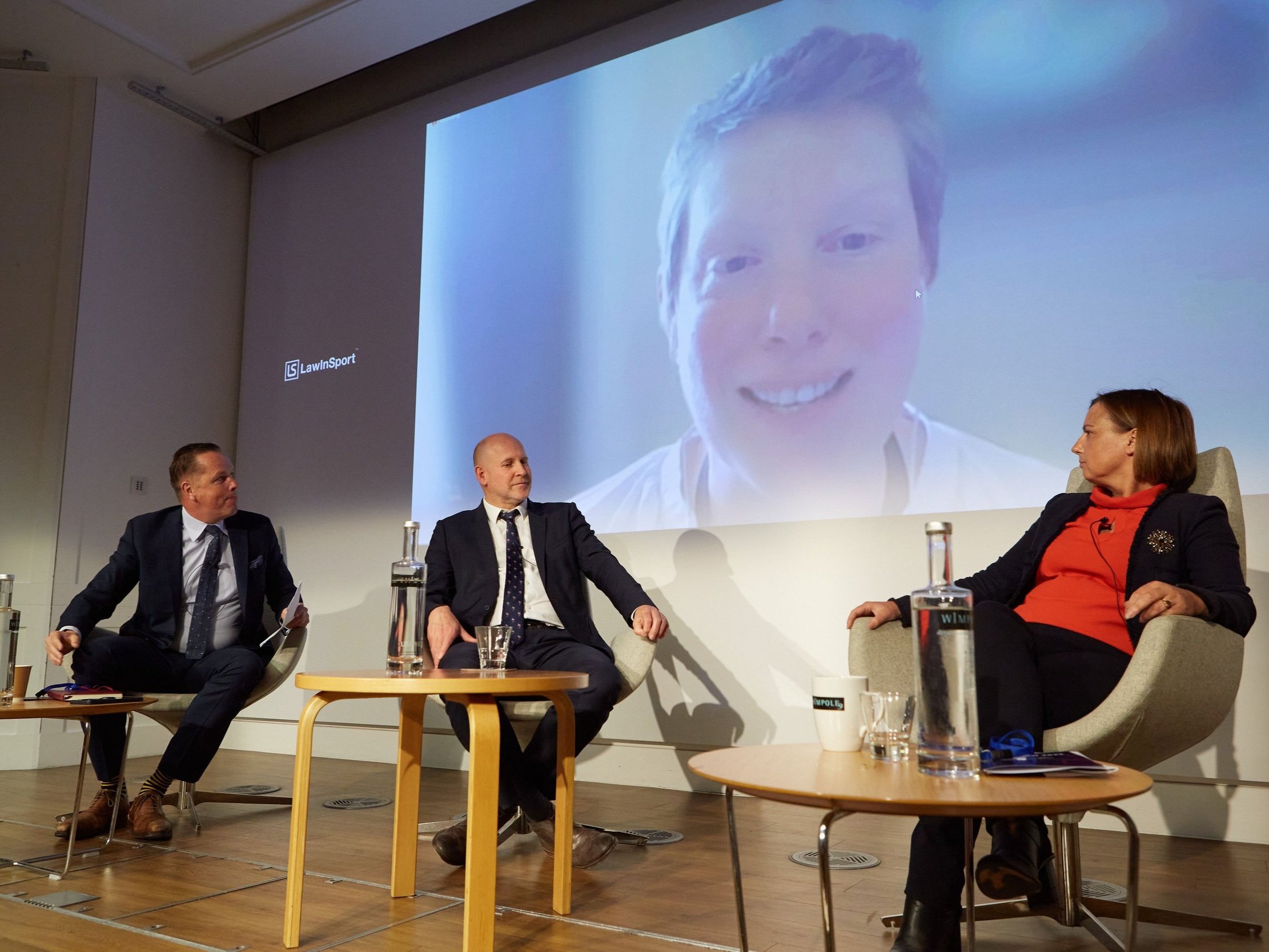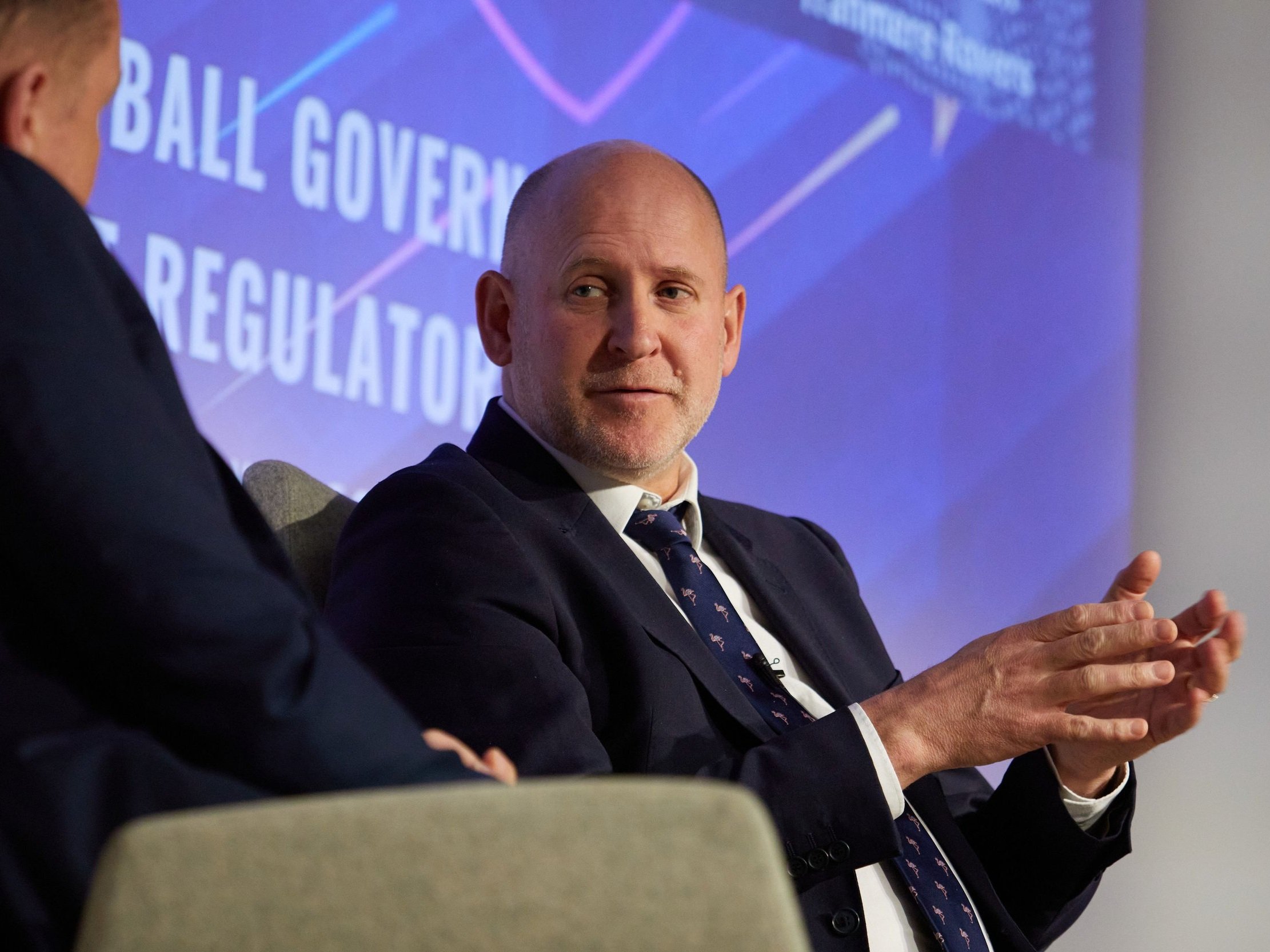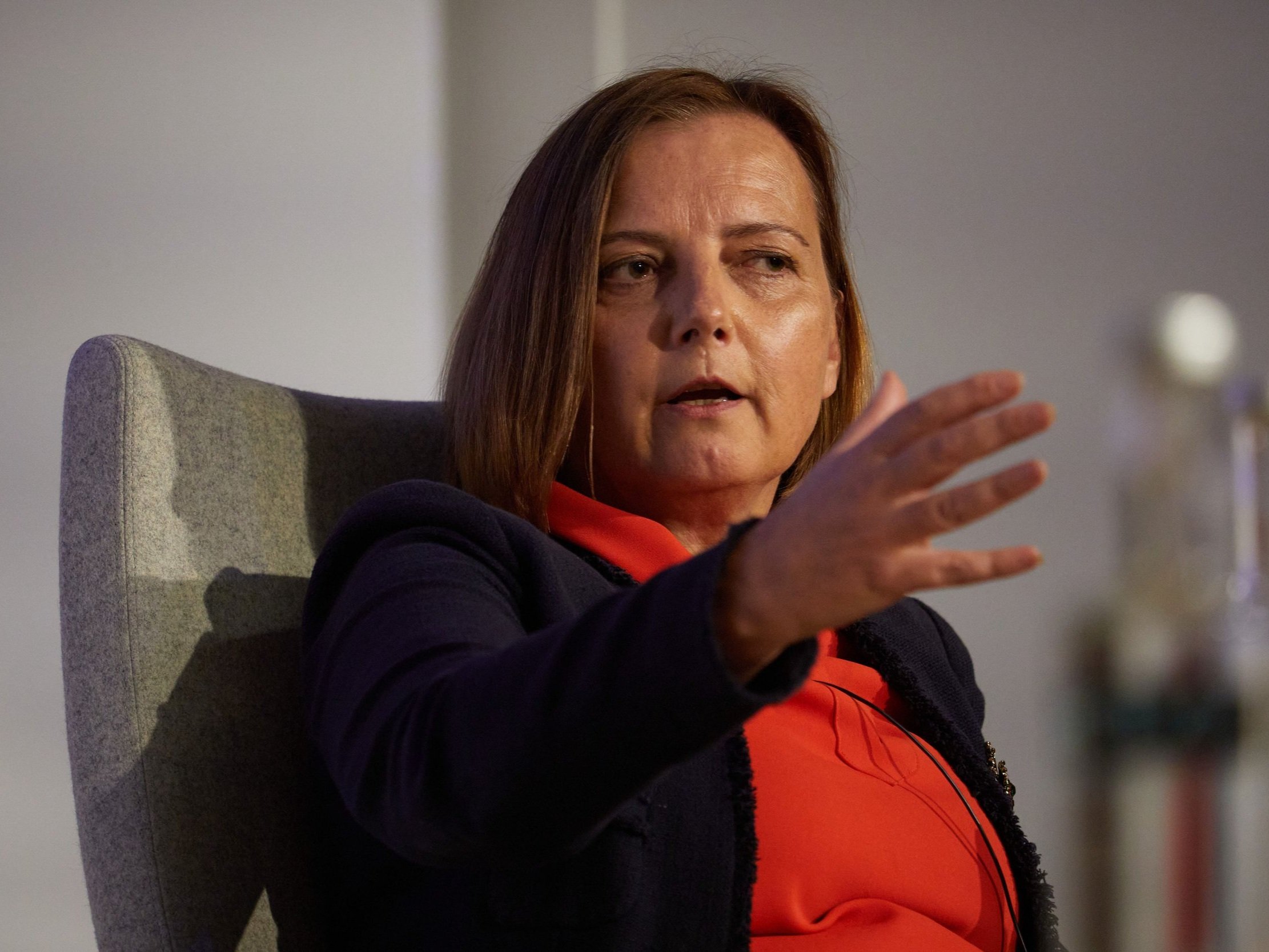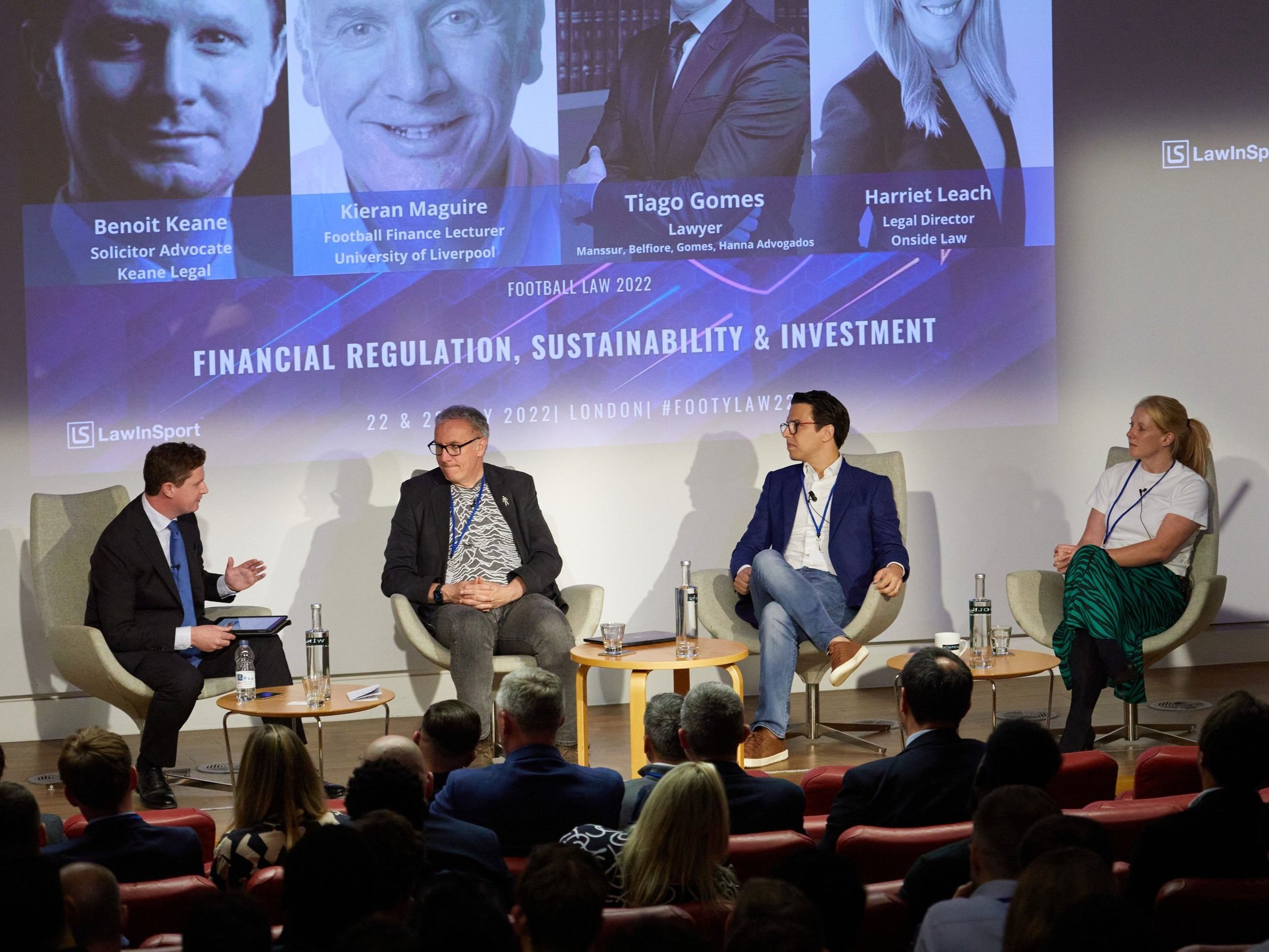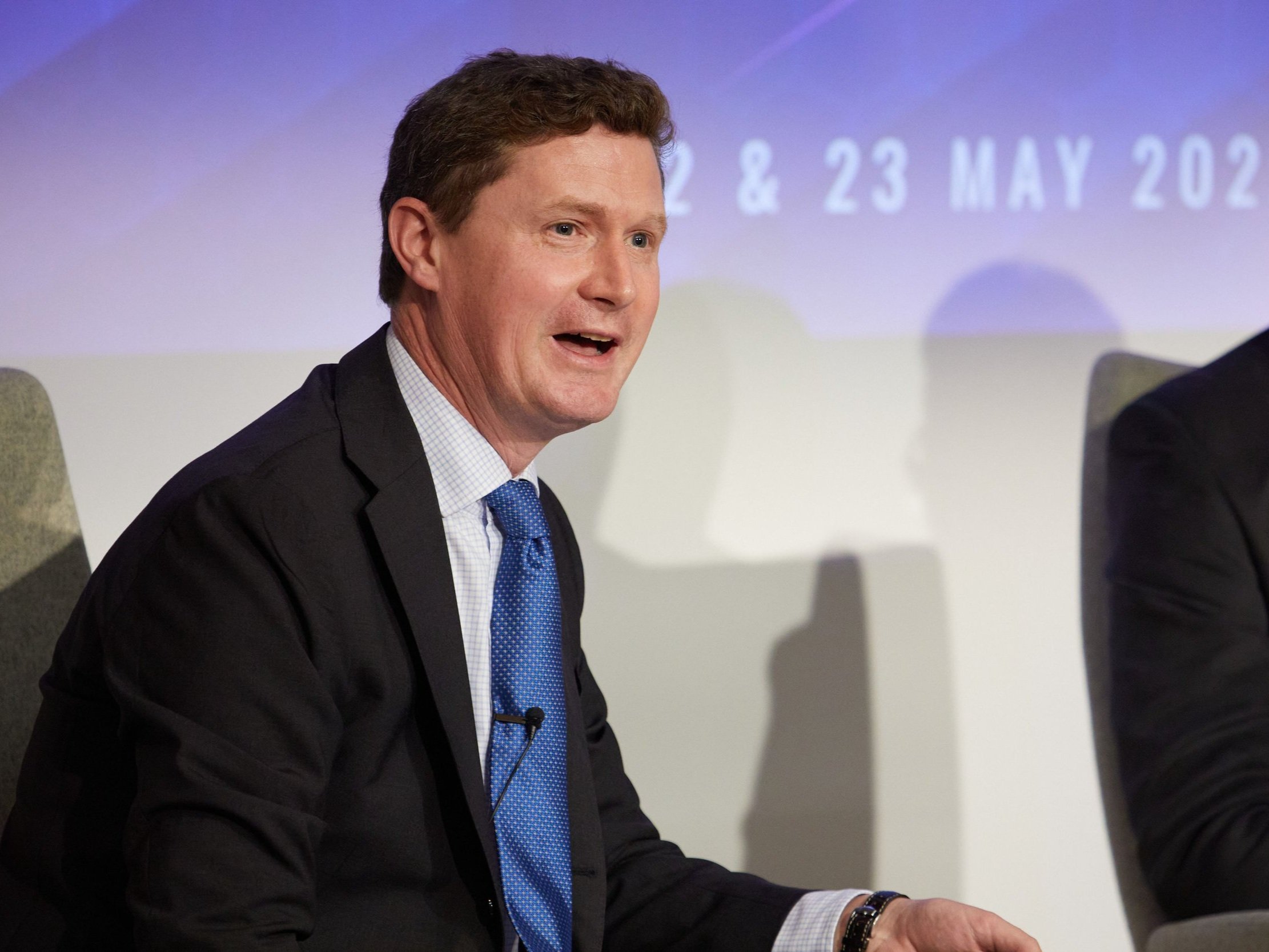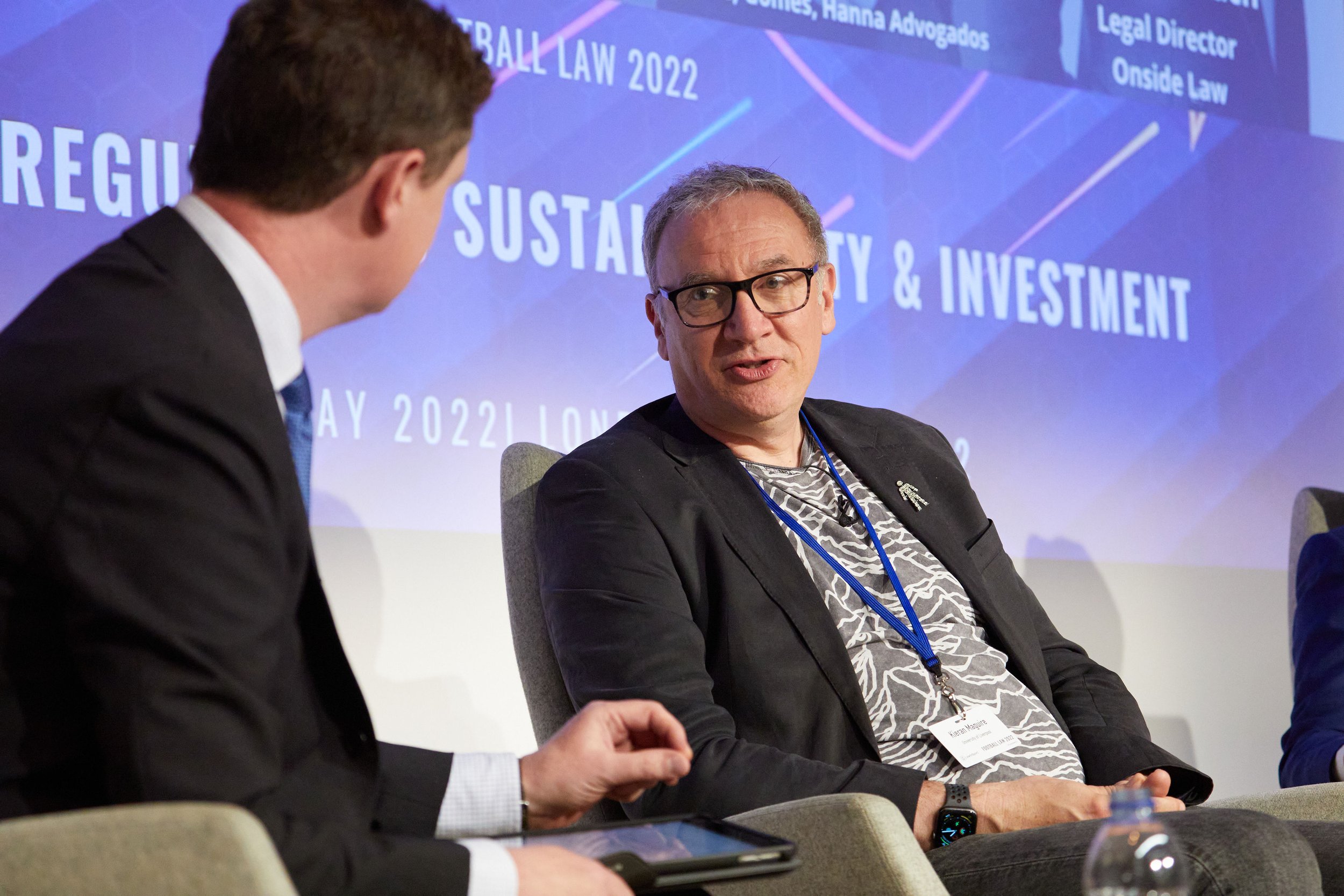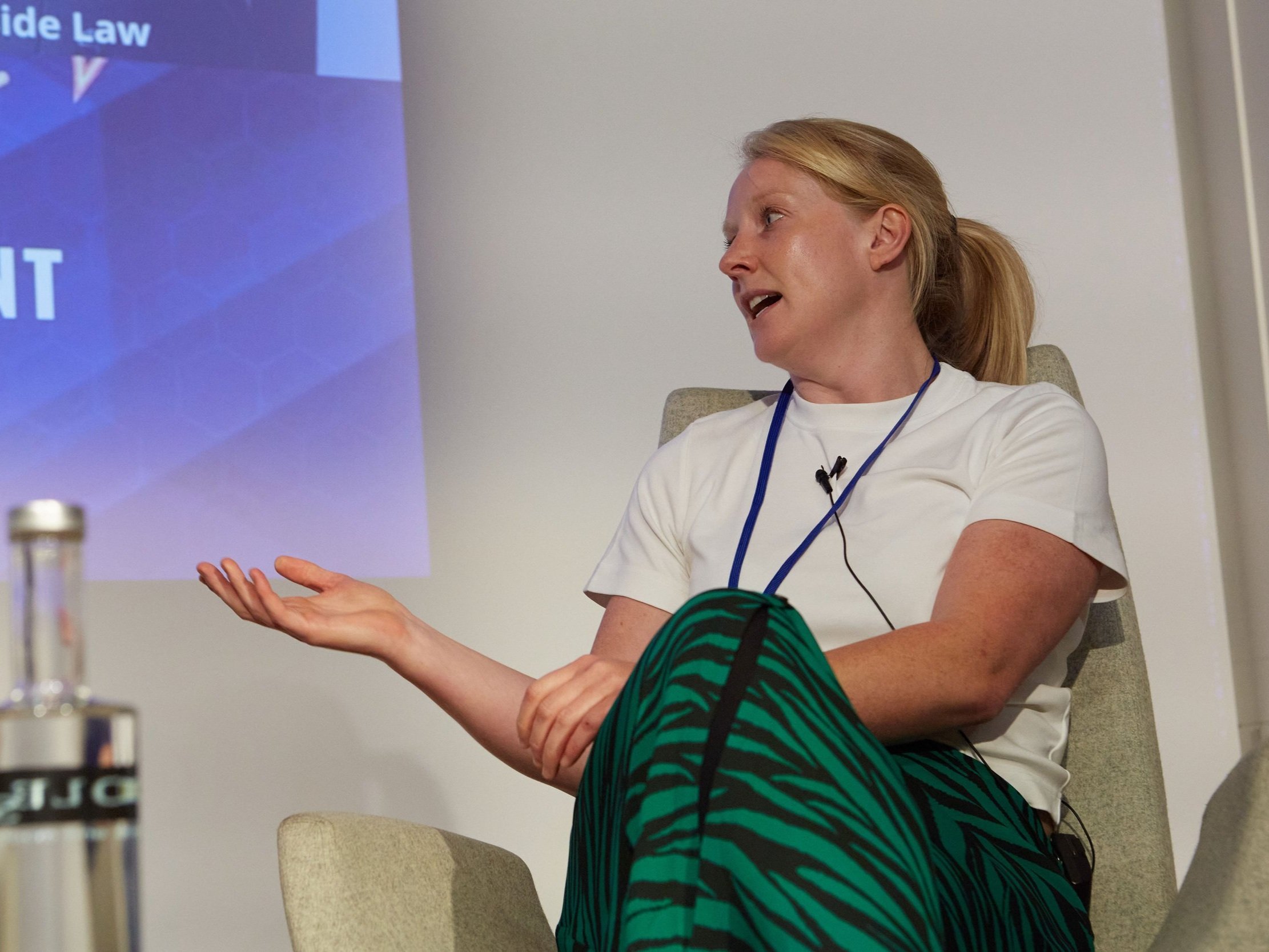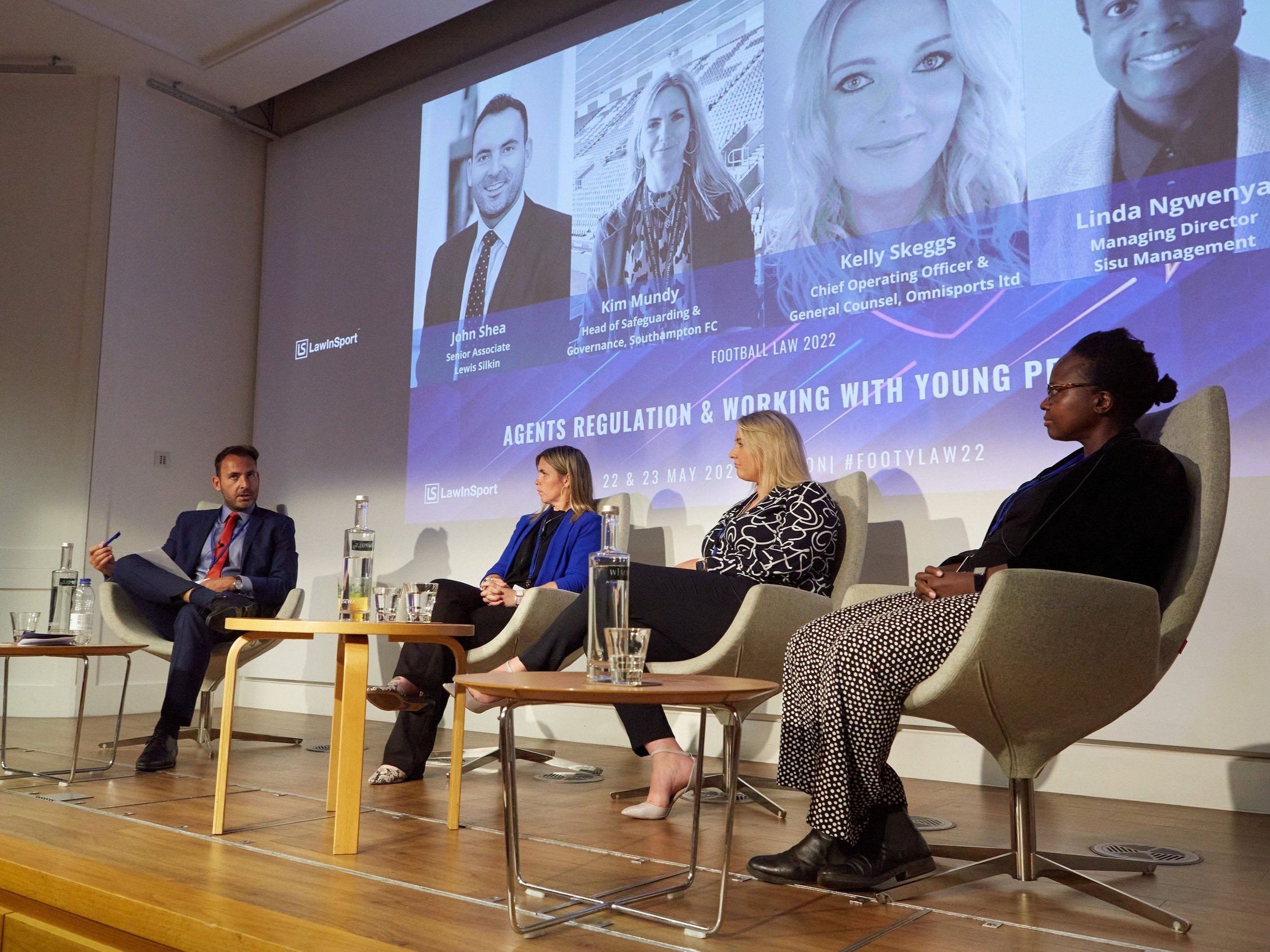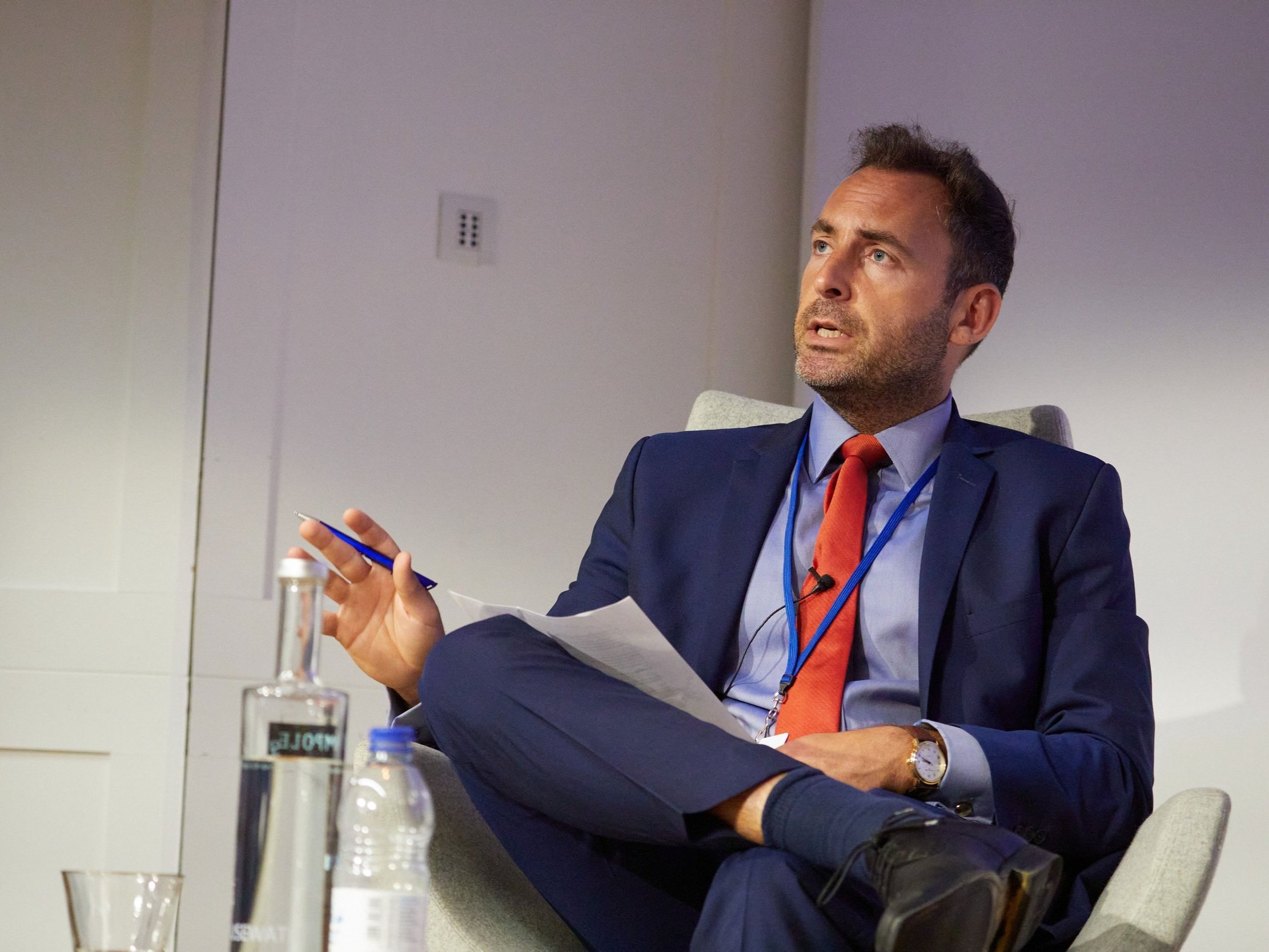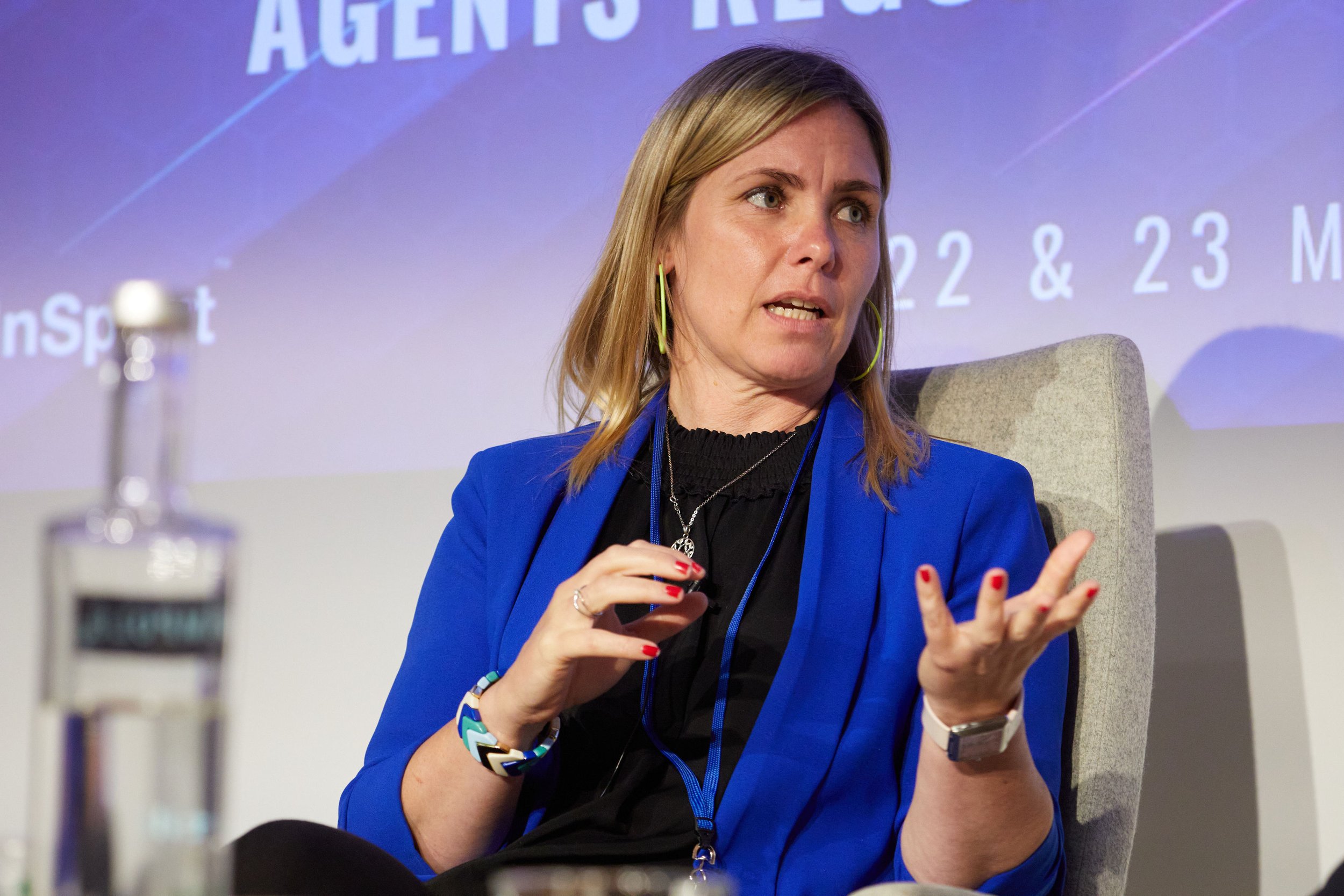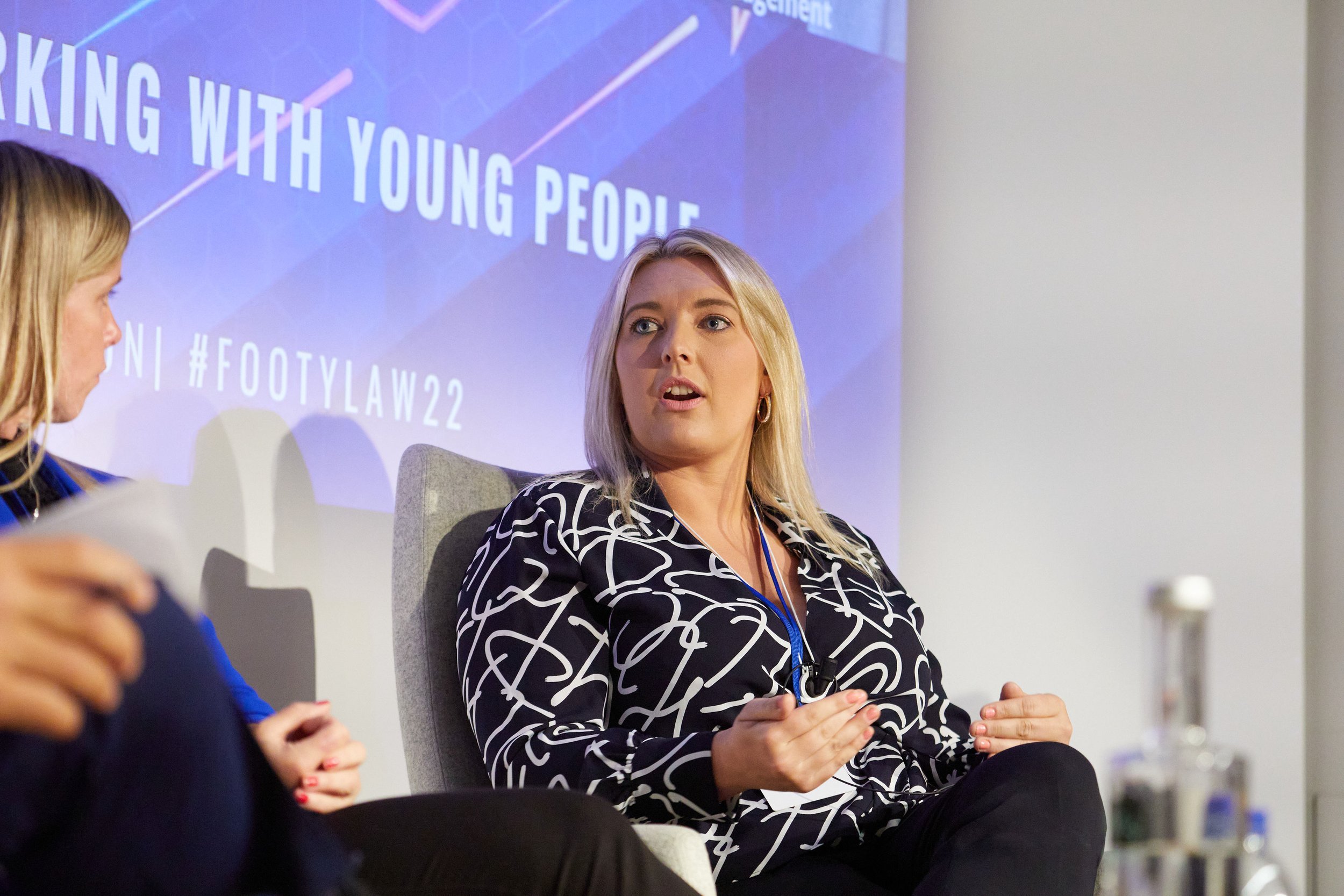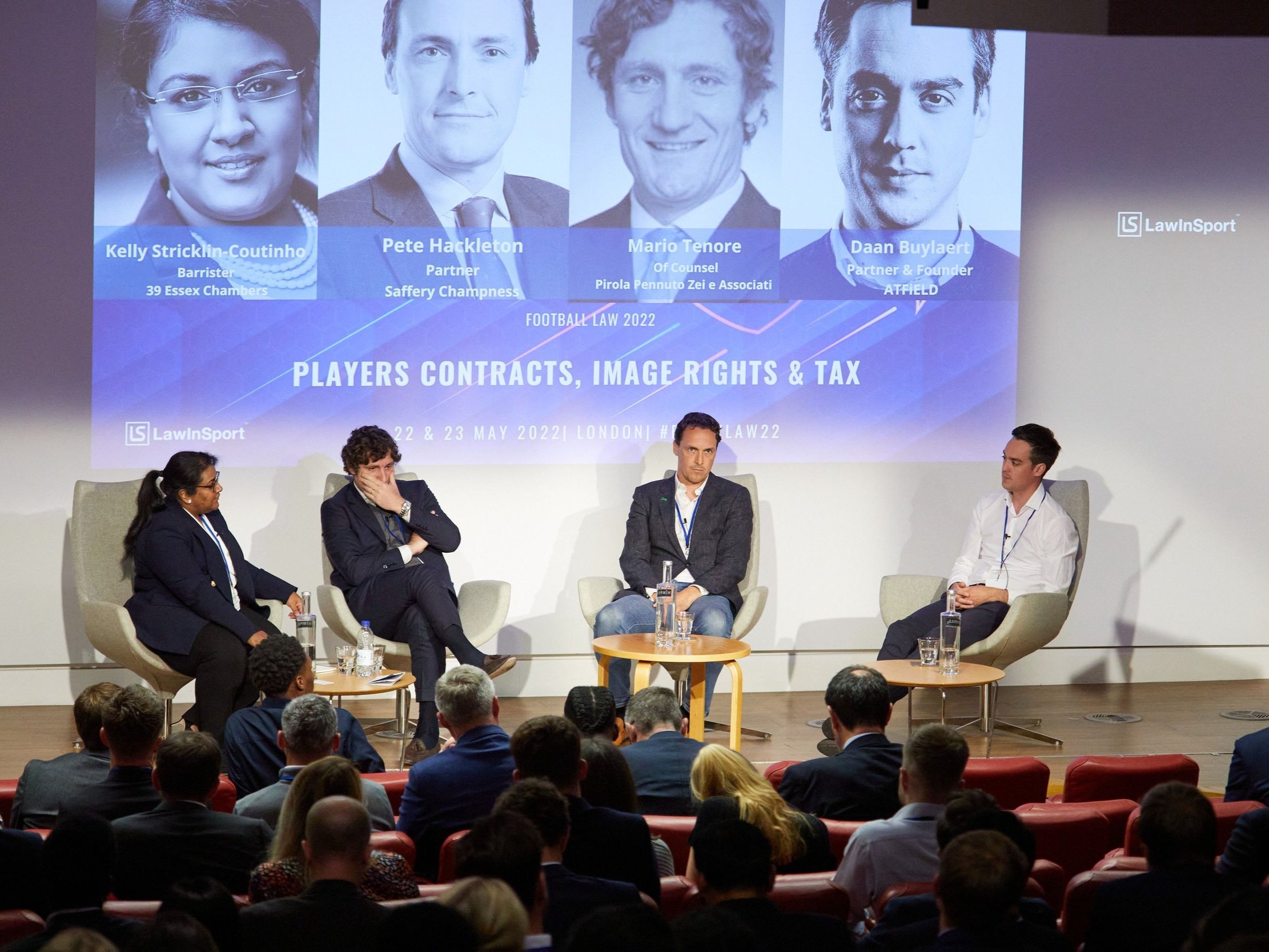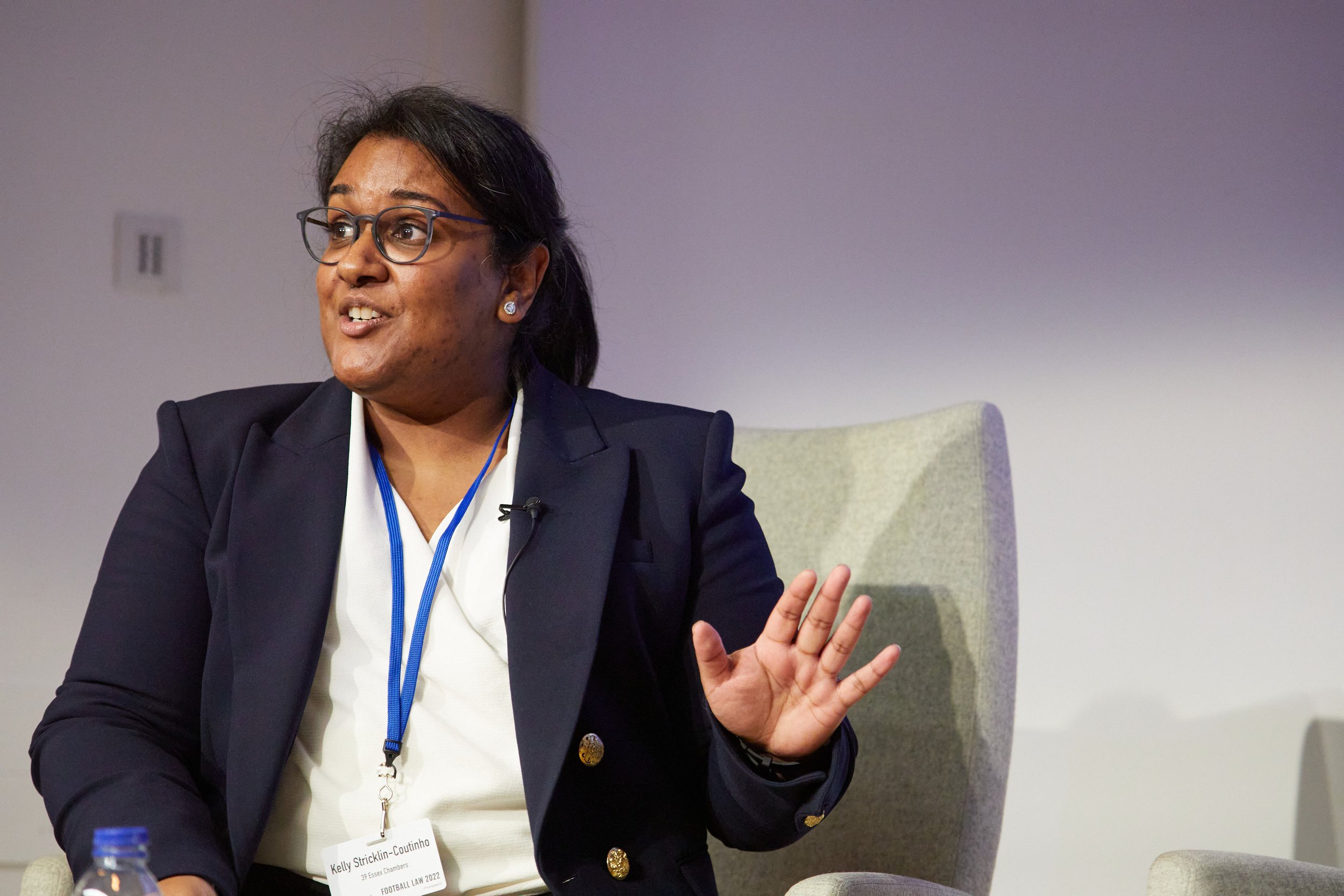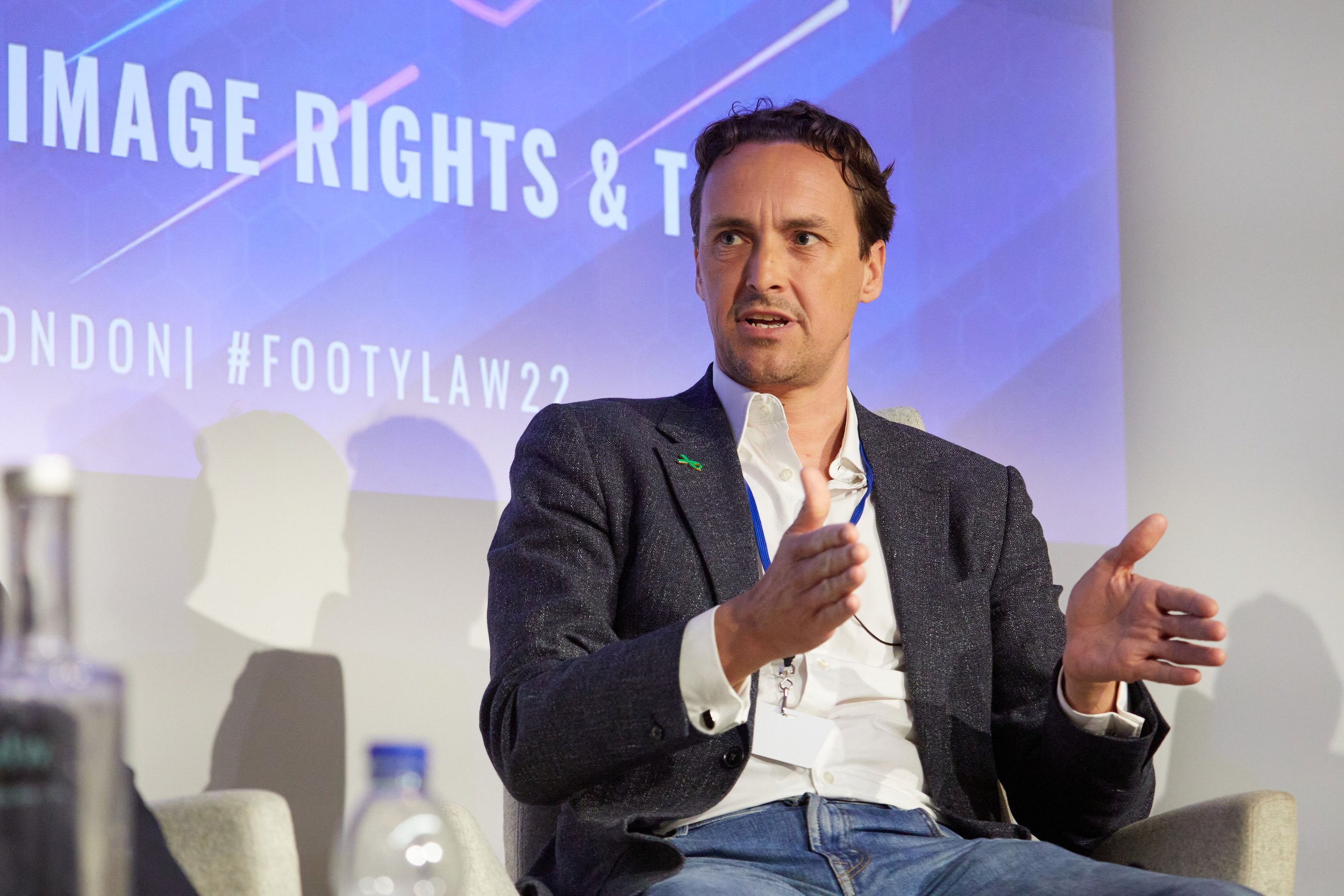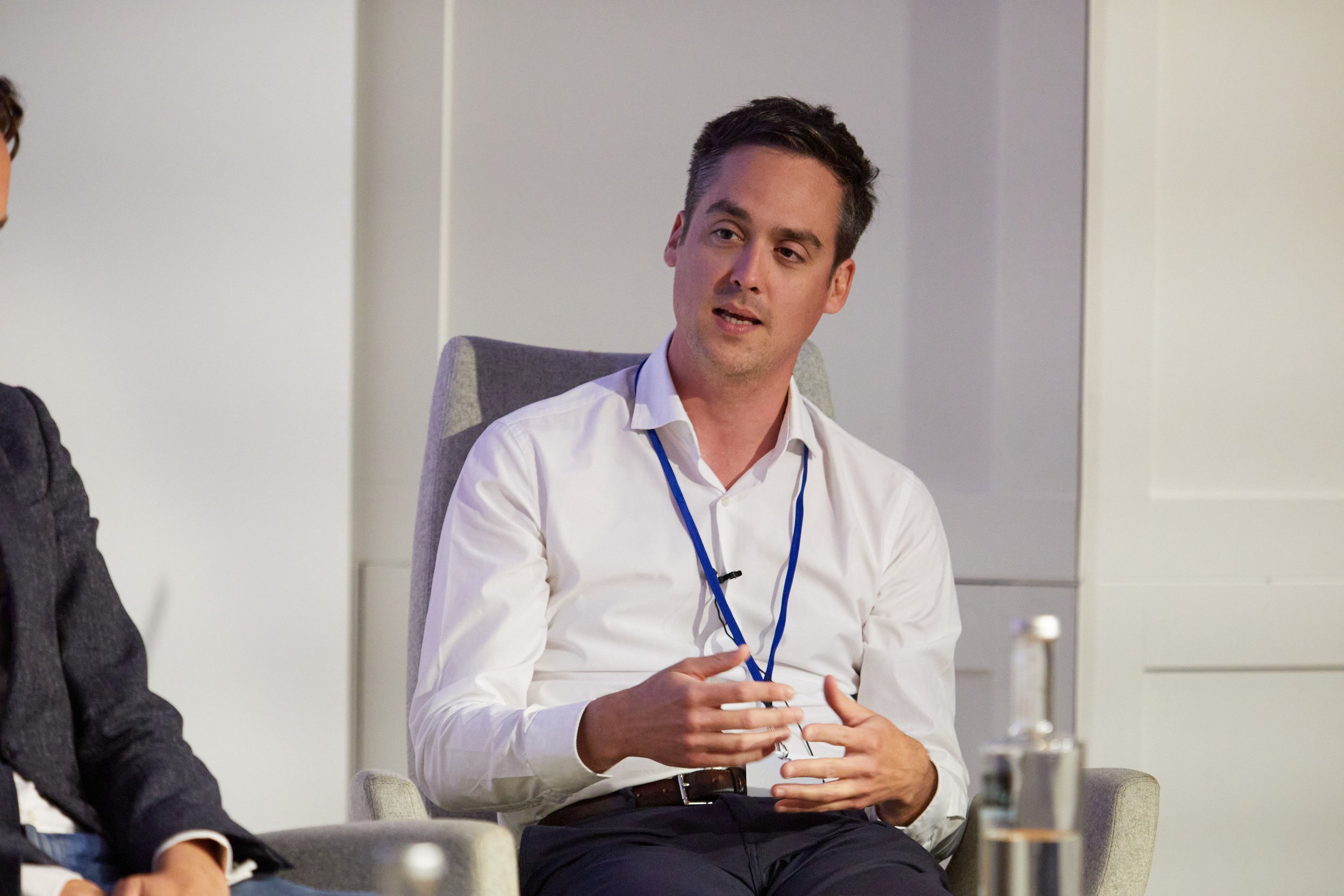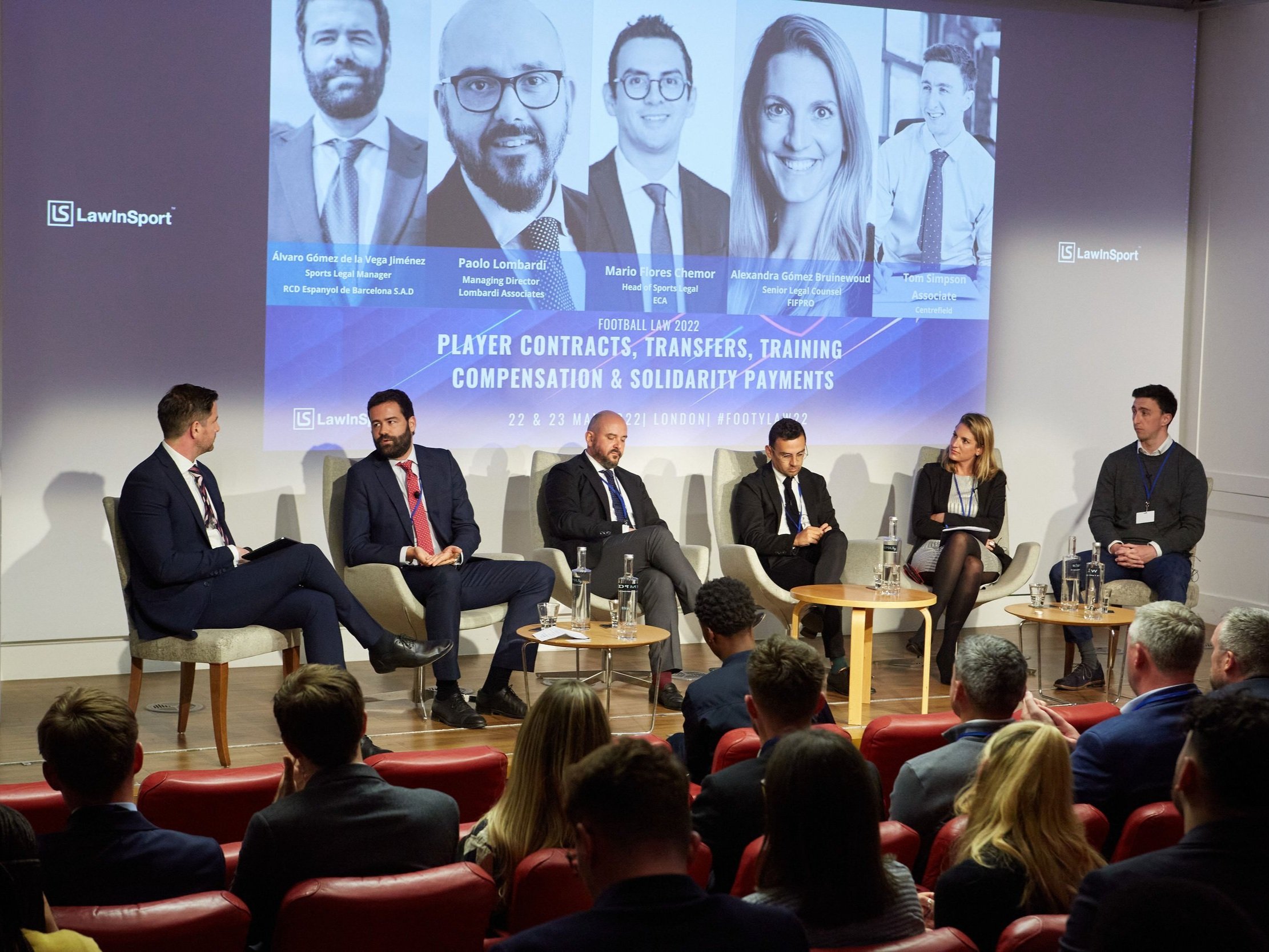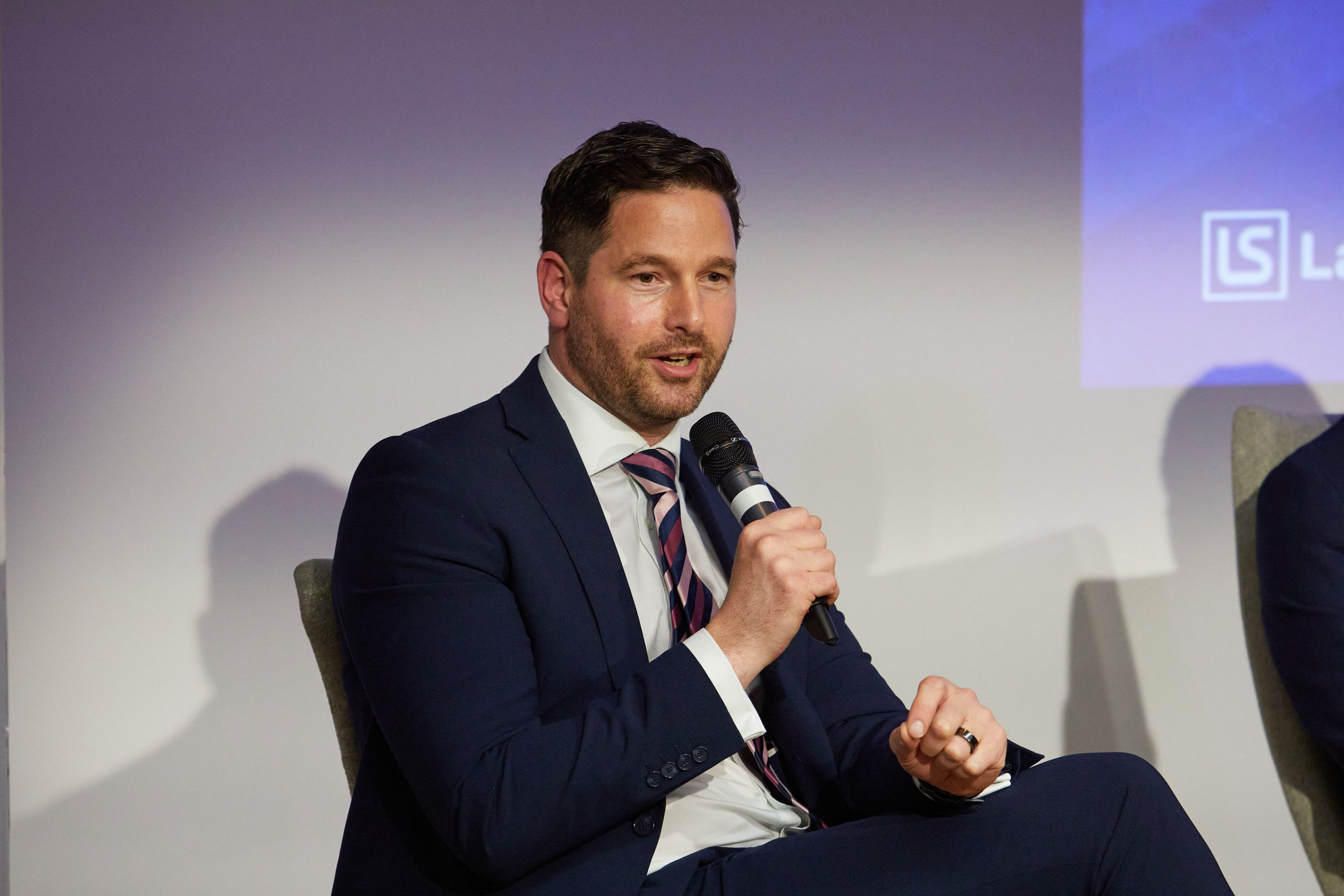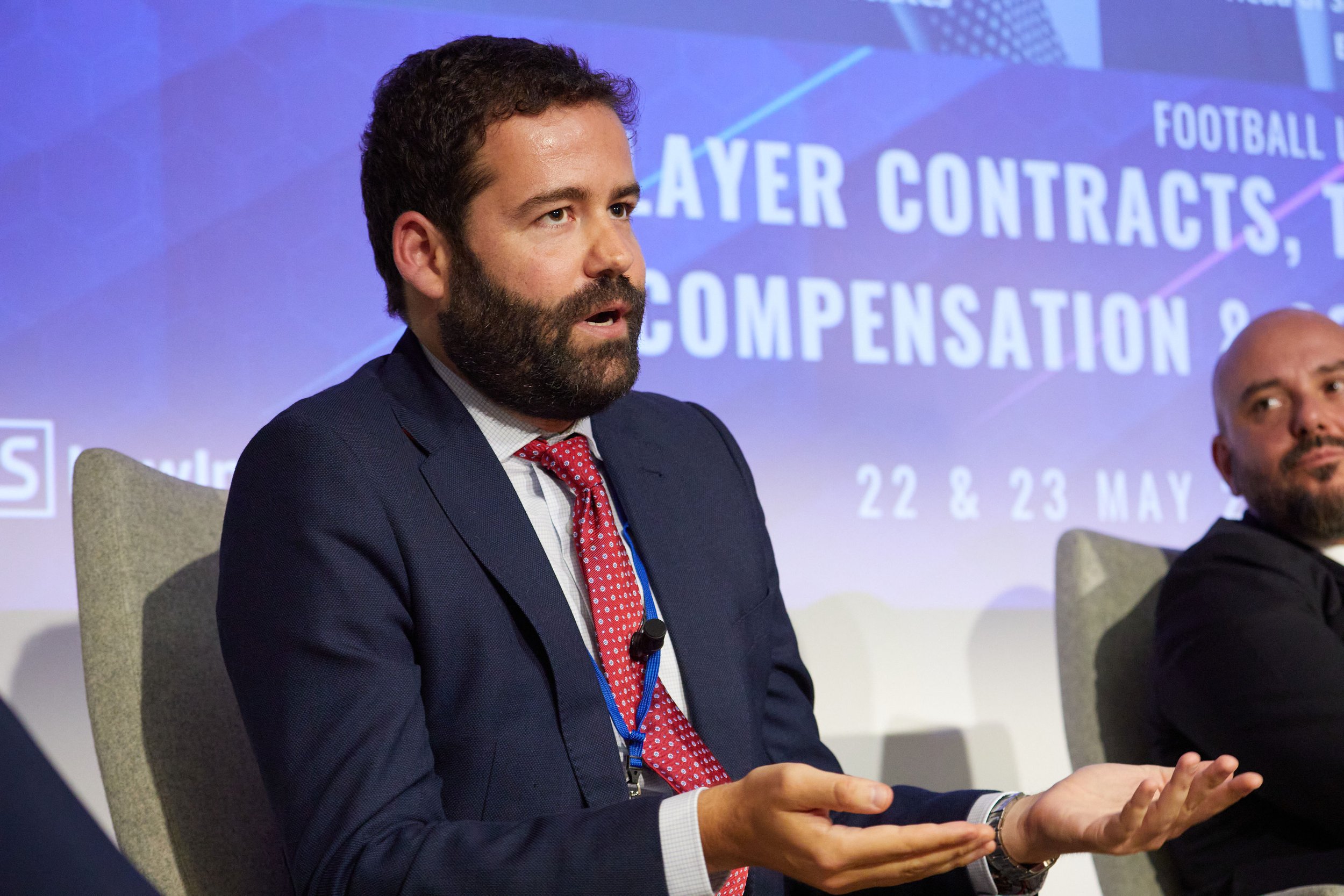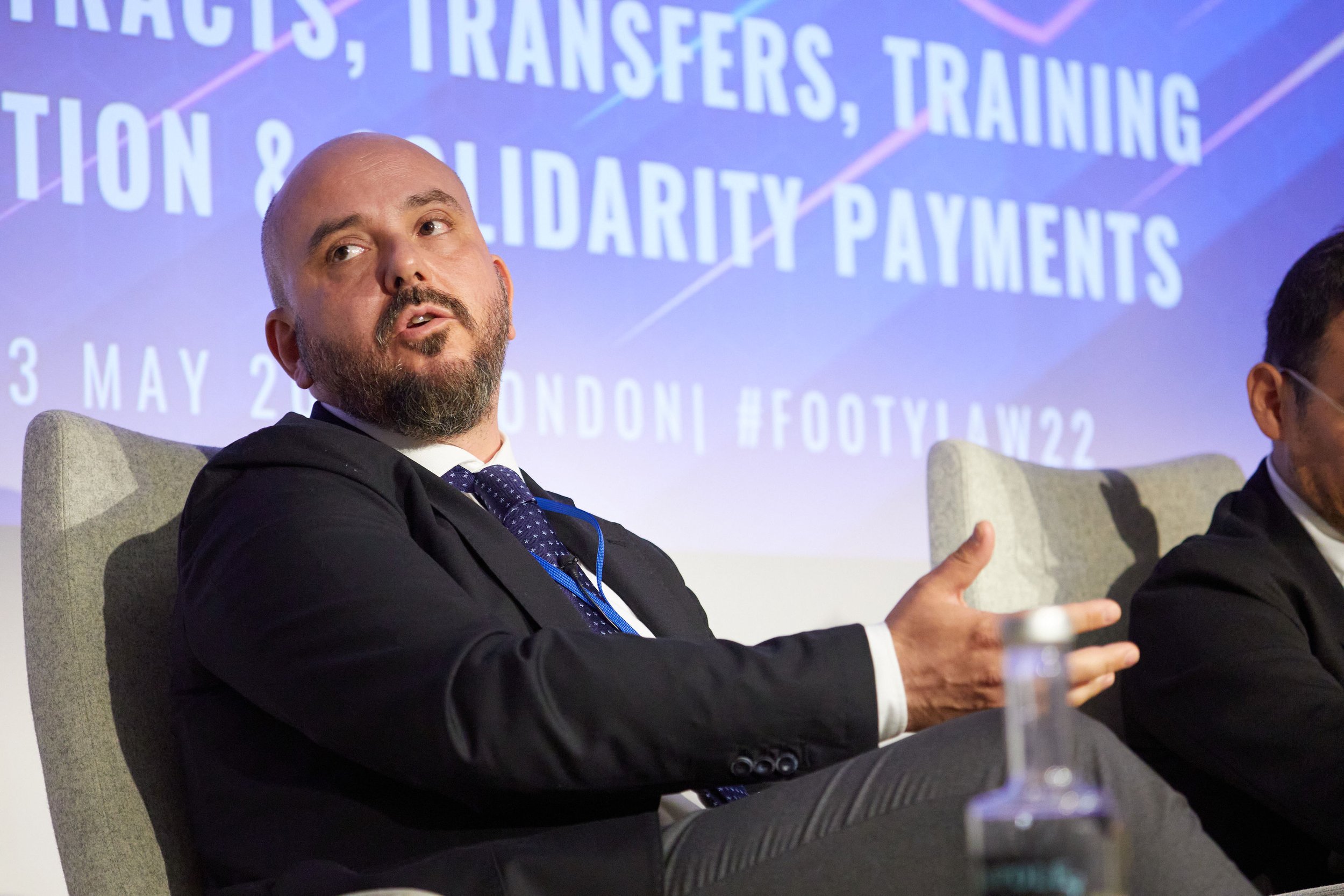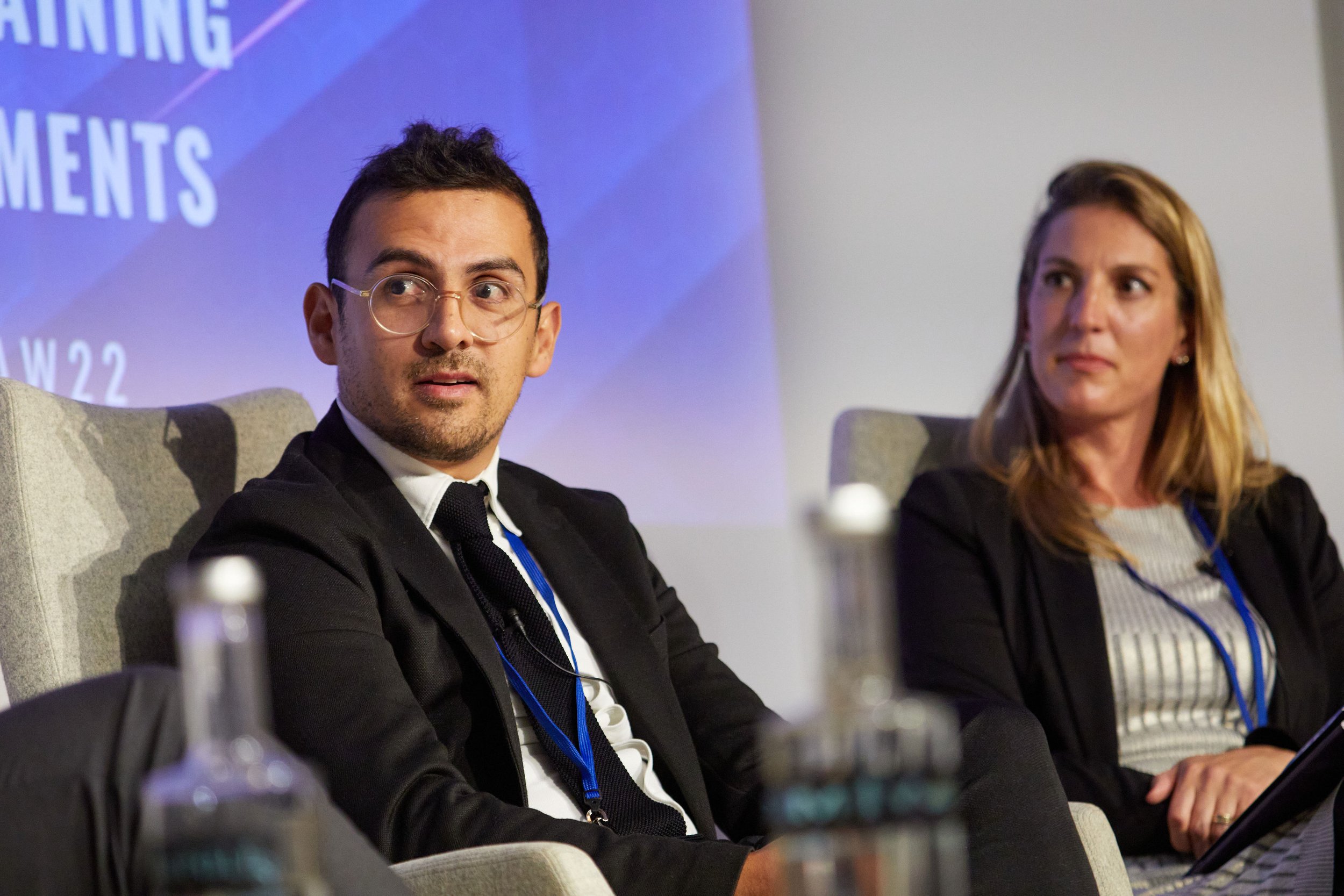LawInSport’s Football Law Conference 2022
* THIS ARTICLE HAS SINCE BEEN PUBLISHED ON LAWINSPORT’S WEBSITE. IT CAN BE FOUND HERE *
As a full member of LawInSport, I regularly read articles encapsulating the essence of law in a sports context. I was drawn to their events section where they announced that they would host a Conference fusing a duality of my passions, football and the law. I was excited by the opportunity to converse with an eclectic group of people whilst attaining greater knowledge on football business by viewing seven fascinating panel talks.
This blog post will detail a summary of the topics discussed, my experiences of the event and networking in general.
The Panel Talks
PANEL 1 (09:20 - 10:20)
Legal Implications and Application of NFTs & Fan Tokens
Anne Rose - Managing Associate & Co-Lead of Blockchain Group, Mishcon de Reya LLP
Liam Thorpe - Head of Legal, Red Bull Media House
James Newman - Director of Corporate Affairs, Chiliz & Socios.com
Kicking off proceedings was arguably the most technical and complex subject of all for contemporaneous legal issues in sport, a discussion surrounding NFTs and fan tokens. The panel comprised a trio of voices in this up-and-coming area of the sports industry, all coming with fresh perspectives on how to ameliorate the discourse on NFTs and fan tokens, which attract widespread apathy and criticism.
Ways of Improving NFTs & Fan Tokens
They highlighted the paramountcy of considering fan tokens as a fan-centric community.
A key asset of NFTs is the presence of a technology called the Interplanetary Storage System, which is effectively a network of decentralised storage. Discussions continue to evolve around the best means of storing NFTs due to concerns over its energy consumption and the need for companies to contemplate offsetting their carbon footprint.
The most notable consideration for improvement in this topic was a repeated desire for more education and transparency, by establishing a solutions-focused community. In order for more people to accept NFTs, the trio of panelists believed more people need to be taught about the actual benefits of NFTs and how they work. I found James Newman’s suggestion very impactful. He noted how improved marketing and a potential name-change away from ‘Non-Fungible Tokens’ would make the new commodity more accessible.
Important Case Law & Examples
The sheer number of companies attempting to involve themselves in the market has led to reliability issues, as there is a growing scepticism for large corporations to partner with NFT focused platforms, regardless of fees and this is where track record becomes imperative, hence the success of Newman’s associated companies, Chiliz and Socios.com. The panel discussed how corporations should be advised more to embark on technical due diligence prior to engaging in lucrative contracts with NFT platforms.
Prominent case law in the topic came up, leading to a dialogue comparing and contrasting positive examples of projects against those cases where lessons should be learnt.
Nike v StockX repeatedly came to the fore in discussion and centres on Nike suing online retailer, StockX for utilising images of Nike sneakers as NFTs, arguing that it infringes Nike’s trademarks and causes customer confusion. StockX are claiming that these NFTs provide physical authenticity and certificate-like effect as they tie into the purchase of sneakers. As a result, StockX do not deem these NFTs to be “digital sneakers or virtual products” contrary to Nike’s purported beliefs.
They also mentioned a case away from a sports context, Miramax v Quentin Tarantino, which entails seven NFTs which provide access to behind-the-scenes, never seen before Pulp Fiction footage, which is technically owned by Miramax, who could deny fans access. This case really exposes the troubles of NFTs and the confusion it leads to, even with immensely powerful people.
These interesting cases are still ongoing and demonstrate the legal difficulties arising in this new area, particularly due to its close association with intellectual property law. It will be fascinating to see what the Courts decide in relation to the powers of rights holders for NFTs.
At the heart of the panelists’ debate was ‘what makes a good project’. They agreed that the NFT or fan-token proposal should be fit for purpose, fan-centric and focused on entertainment rather than marketing NFTs as an investment tool. The repeated phrase to encapsulate this was ‘utility’. Examples were considered to provide some meat to the bone. They highlighted how those in football have tried to dip their toes in the market, but some have struggled to make meaningful success. John Terry, amongst many others, associated himself with Bored Yacht Club and his ‘Ape Kids Football Club’ NFT has dropped by about 90% in value, from over $650 in February to now under $50. Paul Pogba also promoted his NFT project, Cryptodragons, claiming it was worth $162,000 but its sales have since plummeted severely.
The main example used for a forward-thinking project was Adidas Originals’ NFT regime. They have collaborated with Gomoney, Punks Comic and Bored Ape Yacht Club to launch an NFT entitled, ‘Into The Metaverse’. It has sold very well and represented the evolution of NFTs as it introduced a redemption mechanism, whereby buyers can ‘burn’ their NFTs by exchanging their NFTs for the physical item in return. It is a difficult market but Adidas have certainly stamped their mark in the industry.
My Take
Prior to a few months ago, I found NFTs and fan tokens a very unapproachable concept and something I felt no desire to invest financially in, and arguably I still do not intend to, although fan tokens seem more enticing. As the panel affirmed, education and transparency are key to cultivating the industry into one which is respected, and to enable its potential to be fulfilled. It was an impressive talk as they clarified the technical elements of the topic and succinctly provided ways in which the area could be improved.
PANEL 2 (10:30 - 11:30)
Managing & Responding to Fan Behaviour
Lungi Macebo - COO, Birmingham City FC
Darren Whitehouse - Head of Strategy & Partnerships, Sports Ground Safety Authority
Amanda Jacks - Case Worker, Football Supporters’ Association
Sean Cottrell - CEO, LawInSport
This panel exchange was the one I was most excited to see, in light of the very recent incidents involving fan invasions. At the forefront of the sports back-pages is the discourse surrounding fan behaviour at football stadiums, as multiple players and managers have been attacked in a short space of time. Prior to the incidents involving Patrick Vieira, Billy Sharp and Robin Olsen, Jack Grealish being struck by a Birmingham City fan in 2019 was the most recent altercation in my memory. The panel offered strong, passionate views on this germane topic whilst providing interesting anecdotes to help draw attention to the sheer lunacy of a small section of fans in the beautiful game.
Is there a fix?
Prior to discussing the triggering factors behind gruesome fan behaviour, the panel, in particular the charismatic Amanda Jacks, recounted a number of stories of fans being subjected to the law. Somewhat comedically, Jacks described an incident where a fan threw a Malteser at his friend and was almost prosecuted under section 2 of the Football (Offences) Act 1991 for ‘throwing of missiles onto the playing area or into the crowd’. A Malteser constituting a missile certainly got a laugh out of the audience. The extent of how ludicrous this case was really did strike me, as it showed me how the laws need adapting to modern standards, particularly as this legislation was first introduced over 30 years ago.
The legal area of main focus however is offences under section 4 of the same Act, ‘going onto the playing area’, which is more relevant to the recent fan-player incidents. The question the panel presented was whether a re-ignition of football hooliganism represents a wider societal issue or whether events in football is merely a microcosm of society. They noted how pre-COVID figures showed an improvement in fan behaviour, but the period of two years or so without mass human contact and live football may have sparked a change in this trend, which is reflected by the figures. Lungi Macebo highlighted how her job more than ever focuses on pre-planning and preventing incidents such as protests, hand-cuffing onself to the goalposts and pitch invasions. She noted how monitoring social media and fan forums has helped to prevent proposed disruptions manifesting themselves, but she also urged caution in this regard as it is hard to differentiate between ‘false talk’ or mere provado and actual threats.
Discussion surrounding alcohol became a major chunk of the debate, and the aforementioned anachronistic nature of the laws in this area was further highlighted by s.2(2) of the Sporting Events (Control of Alcohol etc.) Act 1985, which prohibits ‘being drunk at a designated sporting event’. Macebo stated how this law and the ban on alcohol consumption in the view of the pitch is as a result of football ‘paying for historic events’, and the last month has hardly incentivised lawmakers to change laws to permit people drinking in this way. Highly inebriated football fans is commonplace prior, during and after kick off, and enforcing this law is nigh on impossible. The idea of ‘alcohol tokens’ was suggested by someone in the audience but this could only promote fans to drink more prior to kick off.
To conclude the discussion, the panel importantly offered a number of ways in which the exponential rise in negative fan behaviour since fans have returned to stadiums could be offset. This includes the following:
Working in conjunction with media corporations (newspapers, television etc.) to reduce the glamorisation of flares, as although it offers incredible imagery to reports, it may also encourage fans.
Physical interventions, for instance wire meshing, which exists in some European stadiums. However, some on the panel criticised this as ‘returning us to the dark ages’ of football.
Pro-active engagement and co-operation with fans through Supporters’ Trusts and formalised forums as a means of creating a channel between clubs and fans, to discourage negative behaviour.
Stronger sanctions, such as reducing stadium capacities and more stringent custodial sentences. These severe punishments may further deter the most offensive fan activity.
Changing the language of offending behaviour, such as ‘pitch invasion’ in order to create less moral hysteria. When fans run on the pitch in celebration, the phrase invasion creates parallels with those in war and battle, which may be too strong a term. This would offer a more productive starting point for discussion.
My Take
This is a very difficult situation to resolve and there is no clear fix. The panel offered many ways of mitigating bad fan behaviour and suggested therefore that a holistic approach is needed to control a situation that is currently spiralling. I feel new laws will be introduced in relation to fans running onto the pitch in ways which are ostensibly acts of celebration but in reality lead to dangerous acts towards players and managers. The panel mentioned the upcoming Euro 2022 Women’s Final being held at Wembley Stadium and after the events of last summer with the men’s equivalent event, significant planning will be required to ensure the past does not repeat itself. The next few months promise to be fascinating in this legal area as a coherent response is needed…
PANEL 3 (12:00 - 13:00)
The Future of Football Club Governance
Nick De Marco QC - Barrister, Blackstone Chambers
Martyn Ziegler - Chief Sports Reporter, The Times
Nicola Palios - Vice Chairman, Tranmere Rovers
Tracey Crouch MP
Having seen the impressive orator Nick De Marco outline his thoughts on all things sports law in the past, in particular on Mishcon de Reya’s Sports Law Academy, I was very excited to hear his thoughts in person. After all, he has been described by fellow influencer, Kieran Maguire, as the ‘Messi of sports law’. Ziegler and Palios completed an exciting, multi-stakeholder lineup and the arrival of Tracey Crouch MP on zoom, after a meeting with the Prime Minister, added the cherry on top of the cake.
In a similar light to the other topics, this talk felt pertinent to modern events in sports law. It began with Tracey Crouch’s comments, fresh from her recent Government-endorsed ‘Fan-Led Review of Football Governance’, which entails ten key recommendations to secure the game’s future. These suggestions are available at: https://www.gov.uk/government/publications/fan-led-review-of-football-governance-securing-the-games-future/fan-led-review-of-football-governance-securing-the-games-future.
“We are proud of football’s heritage, but we need to keep up with the business of football”
Tracey Crouch MP emphasised the importance of corporate governance and how the first four recommendations act as a foundation point for transformation, before a change to the distribution of wealth across the football pyramid can be implemented. The most interesting take-away from Crouch’s summary of the Review’s progress was the extent of the consensus over these changes. She accentuated the overwhelming support the EFL clubs have for the proposals in comparison to the Premier League clubs, who are reluctant to lose out financially. This juxtaposition of desires has therefore created a feeling of there being ‘the 72 versus the 20’. There is a growing sense that across the pyramid there is an uneven distribution of monies and EFL clubs are simply surviving from significant cash injections from owners and player sales.
A key concern in this regard is ‘parachute payments’, which has remained a contentious issue for some time due to its effect of distorting competition. They were designed as a soft landing for teams relegated from the Premier League to the Championship, enabling teams to adjust financially to a differing economic setting. In conjunction with solidarity payments, these payments amount to approximately £100million and are distributed over a period of three years. Despite this, many promoted teams spend only one season in the Premier League, for instance the ‘yo-yo’ clubs, Norwich City and West Bromwich Albion. The economic advantage parachute payments provide for relegated teams has arguably created a disparity between those relegated from the Premier League and other teams in The Championship, as a result providing them with a competitive advantage. Crouch offered a potential solution for the Premier League and the EFL to convene and form a solution themselves and if they cannot, the Independent Review would have backstop powers to intervene, but this would be regarded as a ‘huge gamble’ for the Review. Another suggestion, which I felt could be beneficial, was imposing an obligation on players to agree to relegation clauses in the event of their clubs being relegated, which would mean their wages would then be reduced.
A further concern centres around EFL clubs ‘gambling’ on promotion by investing significant amounts on their playing staff, but if they fail to succeed or owners suddenly become disenchanted with spending, as with Derby County, financial sustainability regulations will enforce damaging sanctions on clubs. Insight from Nicola Palios, a key stakeholder of a team in the EFL, was compelling as she voiced her scepticism towards proposals for Premier League teams to distribute around £250million to EFL clubs on a meritocracy basis, in order to create a ‘ladder effect’. She feels that this could still encourage gambling from clubs to receive greater distributive funds, as a result of the correlation between spending on playing staff and success. Palios stated her desire for fan engagement and spending on infrastructure to be the primary focus of spending, as a means of improving clubs’ statuses.
Lastly, the panel evidently found it difficult to reconcile with the idea that the FA and the Premier League could be positive mediums for change in football governance. Martyn Ziegler said the main issue is that leagues are essentially regulating members of their own ‘clubs’ and so, as well as their reluctancy to reform themselves, the imposition of sanctions is lengthy and sometimes not strong enough. This is exemplified by the four year (and counting…) process for a decision to be made on Manchester City’s financial fair play case. The club are unwilling to disclose evidence, but are increasingly being forced to do so and Ziegler felt an outcome is likely to be made this summer. The recent announcement that Everton will receive legal challenges, as a result of complaints by Leeds United and Burnley, will also provide interesting dialogue around this area.
My Take
Crouch asserted her hope for a White Paper to be issued this summer, and although there are some limitations with the Review, as discussed by those on the Panel, I feel the recommendations will be positive and will provide much-needed, refreshing change. This talk was very intriguing, even more so due to hearing different perspectives from key stakeholders in the debate. There is evidently a growing problem with wealth distribution across the leagues and in light of the sanctions imposed on Abramovich, a meaningful test and due diligence into owners and directors is becoming more relevant than ever. To read further on the Abramovich story and my thoughts, please visit the following link: https://food-footy-blog.squarespace.com/blog/the-sanctioned-billionaire .
PANEL 4 (13:00 - 14:00)
Financial Regulation, Sustainability & Investment
Benoit Keane - Solicitor, Advocate, Keane Legal
Kieran Maguire - Football Finance Lecturer, University of Liverpool
Tiago Gomes - Lawyer, Ambiel, Manssur, Belfiore, Gomes, Hanna Advogados
Harriet Leach - Legal Director, Onside Law
The New Regulations
Benoit Keane started the talk with a statement which stuck in my mind, in that football is an ‘interdependent product’. Football clubs, despite being immensely competitive, need each other for the football ecosystem to function. Key to a healthy ecosystem is the restraints in place against clubs’ financial positions, and the Financial Sustainability Regulations (formerly the Financial Fair Play Regulations). The panel of experts spoke about the three pillars of the new Regulations focusing on sustainability. In summary, these obligations involve the following:
The No Overdue Payables Rule - All amounts payable to other football clubs, employees, tax authorities and UEFA that are currently due at the end of the relevant licensing period must be settled within 15 days. If payments are overdue for more than 90 days, the UEFA Club Financial Control Body may consider this an aggravating factor and could consider further action.
The Football Earnings Rule - The current breakeven and financial stability requirements have been strengthened. A club’s costs of relevant investments (infrastructure, youth development etc.) must now be covered with existing equity or contributions rather than debt. However, the acceptable deviation from this has increased from €30million to €60million over a three-year period. It can be increased by an extra €10million for each period if the club shows good financial health.
The Squad Cost Rule - Player and coach wages, transfers & agents fees are now restricted to 70% of club revenues each year. This rule will be implemented on a gradual basis and stands at 90% for the 2023/24 season; 80% for the 2024/25 season and; 70% for the 2025/26 season. UEFA feel this will help limit inflation.
The panel briefly discussed Kylian Mbappe’s recent contract renewal with Paris Saint Germain and the controversial, astronomical financial benefits the Frenchman will receive but this topic is for another article…
The Brazilian Perspective
It was interesting hearing about financial fair play considerations from a Brazilian perspective, with Tiago Gomes mentioning two key points in relation to Brazilian football. Firstly, he spoke about Brazil learning from the models of Spain and Germany, in that clubs are changing from associations to corporations but are aiming to retain certain association elements, such as identity and heritage. Secondly, he highlighted the short-termism of Brazilian clubs, where Presidents are elected for only two years so attempt to do something meaningful in that time as in order to stamp their tenures into the memories of fans. The example of Cruzeiro was given, who have won two Brazilian Série A titles, but have suffered financially as a result of poor high-level decisions.
Women’s Football
Finally, a repeated theme of the Conference was the important discussion of women’s football and the ways in which their game could be improved from an investment and regulatory standpoint. The increased growth and investment into women’s football has been prominent, but arguably attention into regulation has not kept pace. There are currently twelve teams in the FA Women’s Super League, but in recent records only one of those teams did not lose money, which was West Ham United, who made a profit of only £5000. Barclays’ recent acquisition of the sponsorship rights for the league comes with an ambition to expand to further leagues, which will include teams attached to the men’s Premier League as well as new clubs such as Angel FC. Broadcasting payments will become increasingly important for the game to grow as there is currently a disparity in budget’s between teams. However, there is increased hope in the future and the viewing figures reflect this. The Women’s Support Trust shared research stating that 17.9 million people tuned into coverage in the first three months of 2022, up from 6.7 million in the same period last year (ITV.com). It is promising to see this increased engagement and it is hoped the Government will successfully conduct an independent review into women’s football to ensure this growth continues and accelerates.
My Take
In the past decade, the number of teams in financial troubles is troublesome. Derby’s amortisation approach was a key factor in their well-renowned downfall whilst sale-and lease back agreements at teams such as Sheffield Wednesday is also a focus of criticism. This involves clubs selling stadiums to a related company (often the owner’s company) to lease it back, but the profits of the club can be reflected in the balance sheet to show the club does not breach the upper loss threshold of the regulations. It restricts the desire for future owners to buy the club as the stadium is not fully attached to the club.
I support a more organic model of financial growth in teams. Liverpool are the most impressive example, spending within their means and also imposing the renowned salary cap for players of £200,000. In spite of this they have won many titles and it is commendable. It is a topic that could be discussed endlessly, but in short, I feel the new Regulations still do not go far enough in its guidance and as targets to ensure clubs are sustainable and sensible with their spending.
The talk was one of my favourites as it involves a topic I love reading about, and listening to the thoughts of ‘the guru of football spending’, Kieran Maguire, was particularly exciting. Many people I spoke to in the networking breaks, most notably students, spoke of their appreciation for Maguire and his knowledge in the area, and his Price of Football podcast is definitely recommended.
PANEL 5 (15:00 - 16:00)
Agents Regulation & Education for Working with Young People
John Shea - Senior Associate, Lewis Silkin
Kim Mundy - Head of Safeguarding & Governance, Southampton FC
Kelly Skeggs - Chief Operating Officer & General Counsel, Omnisports Ltd
Lindi Ngwenya - Managing Director, Sisu Management
In the previous panel talk, Kieran Maguire spoke of the importance of post-academy care and felt it should be a statutory obligation. It provided a nice segue into this panel talk’s discussion on working with young players. Lindi Ngwenya provided a stark example of unscrupulous behaviour by agents towards children in order to exploit their talents as prodigious youth players. She described how one agent approached a 14 year-old via Instagram in order to represent the player as his agent and the panel strongly condemned this behaviour, arguing this would not be acceptable in any other walk of life. Exploitative methods to obtain the services of some of the country’s top talents is evidently commonplace in the industry and so regulating these types of behaviours was the focus of the panel talk.
At present, football agents must comply with the FIFA Regulations on Working With Intermediaries, and in the UK, the FA Working with Intermediaries Regulations. The last set of FIFA regulations were in 2015, when FIFA decided to pass the baton of providing intermediary licenses to member associations, but due to widespread criticism, have voiced their intention to re-establish a regime of licensed agents later this year amongst other significant changes. This led to considerable backlash from prominent ‘super-agents’ such as Jonathan Barnett, Jorge Mendes and the late Mino Raiola. Many in the game have denounced the sheer excesses of agents fees attached to transfer dealings and wish for better transparency. The fact $500.8million was spent on international transfers in 2021 embodies the financial power football agents have (BBC). It will be interesting to see whether FIFA’s proposals come to fruition this year when the new set of regulations are issued. They are presenting the idea of agent payments being capped at 3% of a player’s salary and 10% of the transfer fee.
““We can’t disclose exact names and clubs but there are some really striking numbers when you look at the fee compared to the salary. There was a player who went from France to Germany in a transfer that involved a payment to an intermediary that was 118% of the player’s salary.
That is why we are looking at abusive and excessive practices.”
Intermediaries currently require extended authorisation from the FA to represent youth players under 18 years old in line with Appendix II, paragraph 3.1 of the FA Regulations and the duties they are obligated to comply with are outlined in Part E of the FA Regulations. These include avoiding and declaring any conflict of interest, a duty to not profit from their position (except remuneration for services provided) and disclosure and confidentiality. The panel underlined the importance of the parental support system for young players insofar as they should observe the Regulations and ensure that intermediaries are abiding by their obligations. However, they then went on to debate about the efficacy of the enforcement of these regulations, as when breaches occur, there is often a lack of evidence being provided to be able to discipline intermediaries who overstep the mark. I am intrigued to see whether the impending 2022 regulations put in place more stringent sanctions.
A number of solutions were then examined by the panel with two in particular attracting the most attention. Firstly, the PFA’s role in the career progression and pathway planning of youngsters was discussed, and those on the panel and amongst the crowd felt more could be done in this regard. Secondly, the former Stoke City and Republic of Ireland striker, Jonathan Walters, was in attendance and posed the question of whether the idea of an ‘open day’ could be utilised to mitigate the issue. He suggested there could be a selection of ten to fifteen approved agents on a panel, for families to discuss their desires with, before weighing up their options and electing to hire one for their child’s footballing future. This idea was very much welcomed by the crowd and panel alike, and it was interesting to hear from a former player’s perspective.
My Take
The panel tackled a number of important issues in the area and truly cast a light on the importance of educating young players about the regulatory side of intermediaries. It is indisputable that young players remain in a vulnerable position when it comes to deciding which intermediary to hire as integrity and trust become imperative in order to ensure their future is in safe hands. In recent years, agents fees have risen exponentially and agent malpractice is still commonplace in the industry. I am therefore curious to see what the new 2022 FIFA regulations will involve and whether it will ignite meaningful change. There is hope for improvement but only time will tell.
PANEL 6 (16:00 - 16:40)
Player Contracts, Image Rights & Tax
Kelly Stricklin-Coutinho - Barrister, 39 Essex Chambers
Mario Tenore - Pirola Pennuto Zei e Associati
Pete Hackleton - Saffery Champness
Daan Buylaert - Partner & Founder, ATFiELD
The penultimate talk provided disparate views on player contracts, with a primary focus on taxation. Kelly Stricklin-Coutinho hosted a trio of esteemed panelists, Mario Tenore who spoke on the Italian side of taxation, Pete Shackleton who touched on the UK and Daan Buylaert who discussed Belgium in this regard.
Belgium
Daan Buylaert began the discourse by highlighting the impact of the infamous ‘Operation Zero’ football scandal in Belgium between 2017 and 2019. Investigations were launched into match-fixing in response to suspicious financial transactions. Most notably, football agent, Dejan Veljkovic, influenced a relegation battle between Waasland-Beveren and KV Mechelen by forming agreements with referee Bart Vertenten, important board members and three journalists. In total, a large group of 23 eminent figures were charged for financial fraud. This has led to increased regulation in Belgian football. Buylaert also alluded to the relevance of Belgian tax law in connection with this, as social security contributions for employers are uncapped, meaning they increase proportionately to one’s salary, without limit. As a result, it acts as a hindrance for employers to employ high-earners.
Buylaert also discussed the salient point regarding Belgian football’s rise to prominence being the increase in foreign investment in its football clubs as a result of favourable tax regimes.
Italy
Mario Tenore offered a fascinating insight into Italian tax law and what caught my attention the most was the Italian Government’s ‘lavoratori impatriati’ scheme which encompasses a special tax regime for newly resident workers, to ‘encourage the movement of human capital’ to Italy. Many professional footballers benefit from this tax break as they fulfil the requirement of being a non-resident for the previous two years and will be mainly working in Italy in the future, irrespective of their qualifications or role. The players are required to sign contracts lasting at least two years and must pay an additional 0.5% of their taxable income to the state for investment into training. The tax regime allows a 50% tax exemption for player salaries which is highly attractive, and has provided an incentive for players to join the Serie A, in turn enhancing the competitiveness of the Italian league in regard to attracting foreign superstars. The Italian league is already growing in prominence and is increasingly competitive, as seen by AC Milan winning the title this season and Inter Milan last season, shifting away from the monopoly Juventus had for around a decade. The tax exemption could therefore lead to an influx of ‘big name players’ joining the league.
Cross-border issues and the impact of Brexit then came to the fore in this jovial discussion. Tenore spoke of there being a ‘mismatch’ in rules between England and Italy. In England, there is split-year treatment’ consisting of a non-resident part and resident part thus UK Tax is paid on foreign income based on the amount of time living in the country. By contrast, Italy applies the ‘worldwide principle’ where residents are liable to taxation on their income wherever it is produced, including foreign incomes. However, players can claim foreign tax relief for the taxes paid abroad, which offsets these concerns and was described by Tenore as a ‘pragmatic’ way of ‘mitigating adverse consequences’.
UK
Cross-border issues continued to dominate the debate, particularly in relation to residency issues. The example of Spain was used where one must spend more than 183 days in Spain in one calendar year to be considered a tax resident in the country. It therefore leads to questions over whether fees are taxable in the UK or in Spain. The last issue of interest was in a UK context surrounding HMRC’s guidance issued on 31 March 2021 for the payment of football agents. The main changes affected agents involved in dual-representation, which means working on behalf of both the player and the club to broker a transfer or contract. Prior to the changes, common practise was splitting the fee equally, 50:50 between services for the player and for the club. HMRC felt this rule was being exploited and have elected to interrogate more deeply into a player’s P11D whilst calling on clubs to provide evidence verifying the apportionment made between services to the player and to the club. The panel debated the efficacy of HMRC’s new guidance but concluded the guidance is poor and requires more thorough explanations. As an interesting aside, Buylaert also noted how dual representation is banned in Belgian football. Pete Hackleton’s point on the guidance was however most striking. He questioned the evidence requirements such as documenting minutes of phone calls and felt top clubs would be better resourced to provide a ‘dossier’ of splitting fees, so are more likely to succeed in enquiries as opposed to the less economically powerful clubs.
My Take
This panel talk was very interesting as it went below the tip of the iceberg into the technical side of taxation, whilst introducing me to perspectives from two key countries in football. It is evident that there is a level of confusion between conflicting tax laws across Europe and greater clarification will be required in relation to residency for instance. Furthermore, HMRC’s utopian guidance is contentious in respect of its added benefit to tax law and pressure will increase on making it a more realistic tool for repairing the dual-representation issue.
PANEL 7 (17:15 - 18:15)
Player Contracts, Transfers, Training Compensation & Solidarity Payments
Sean Cottrell - CEO, LawInSport
Álvaro Gómez de la Vega Jiménez - Sports Legal Manager, RCD Espanyol de Barcelona S.A.D.
Paolo Lombardi - Managing Director, Lombardi Associates
Mario Flores Chemor - Head of Sports Legal, ECA
Alexandra Gómez Bruinewoud - Senior Legal Counsel, FIFPRO
Tom Simpson - Associate, Centrefield
The last talk was arguably the most fast-paced, with a vast range of views being thrown into the debating arena, specifically on solidarity payments and training compensation, which are both important factors when negotiating player transfers and contracts. The infamous Bosman ruling was regarded as a threat to the development of football insofar as it may reduce incentivising training players as it would be cheaper to sign players on pre-contract agreements for free. Solidarity payments and training compensation provided a retort from these concerns.
Solidarity Payments
Article 21 of the FIFA Regulations on the Status and Transfer of Players states the requirements for solidarity payments:
“If a professional is transferred before the expiry of his contract, any club that has contributed to his education and training shall receive a proportion of the compensation paid to his former club (solidarity contribution). The provisions concerning solidarity contributions are set out in Annexe 5 of these regulations.”
Solidarity payments apply upon the international transfer of a player between professional clubs and when a player is transferred for a fee, between clubs belonging to different national associations, before the expiry of their employment contract. The payment will involve a maximum of 5% of the agreed transfer compensation ‘in solidarity’ to clubs who trained the player between the ages of 12 and 23.
Training Compensation
Article 20 of the same Regulations in association with Annexe 4 requires training compensation to be paid by the new club to the clubs that trained the player between the ages 12 and 21. The obligation arises if one of the following two conditions is satisfied:
When a player signs his first contract as a professional
Each time a professional is transferred internationally until the end of the season of his 23rd birthday
In essence, training compensation must be paid when players sign their first professional contract and when players transfer between clubs of two differing national association.
Considerations
The panel interestingly considered the constraints of these two areas of player contracts and how their complex application can be limited when jurisprudence deviates from the regulations. They noted how clubs may be reluctant to buy players with extortionate training compensation fees. It can sometimes leave players in ‘no man’s land’ where their present club are not selecting the player in many matches but other clubs are not willing to pay the training compensation fee to release them from their contract.
Player passports were also a subject of dispute. It is widely regarded in the game as difficult for the buying club to establish who was the club responsible for a player’s education and training, and the ‘Player Passport’, despite offering some assistance can often lack effectiveness. The panel called on FIFA to be more tough on ensuring passports are valid and a possible unification of the registration system could be a potential solution.
The FIFA ‘Clearing House’ & The ‘PSC’
FIFA established a standing committee named the Players’ Status Committee (PSC), tasked with three key objectives to ensure compliance with the above regulations and others could be fulfilled. The PSC holds the duty to advise and assist the FIFA Council in the following areas:
Updating and monitoring compliance with the Regulations on the Status and Transfer of Players.
Determining the status of players in the various Fifa competitions
The work of the Dispute Resolution Chamber
The panel accentuated the sheer importance of the PSC in their role of monitoring compliance whilst the FIFA Clearing House will become central to the debate in the coming years.
My Take
Mario Flores Chemor passionately argued that, what he called the ‘pillars of football’, should be protected at all costs. He referred to the ‘training schools’ who develop players between the ages of 12-23 and how they should receive monetary benefits for their good work in player progression. I would agree with this sentiment, particularly because it helps ensure clubs lower down in the football pyramid can utilise their funds to keep improving their infrastructure. However, the restraints training compensation and solidarity payments make on player movement is a key issue and one that should be the focus of reform.
The Networking
Throughout the day, there were plentiful opportunities to converse with those from across the industry. As well as there being like-minded students with similar ambitions as mine, highly impressive experts were in attendance. I really enjoyed learning about new issues in sports law, hearing about the career paths of people now high up in this competitive arena of law as well as simply chatting all things footy. I look forward to attending similar events of this kind to expand on my opinions and connect with a wide array of people with fascinating insights into the law.
A Bit of Food…
- Pumpkin Tortelloni, Tomato Sauce, Garden Salad and Honey & Mustard Dressing -
It felt only right to do a quick food review, in classic Food & Footy fashion. After a jam-packed day of Panel Talks, tucking into some delicious pasta whilst networking with a range of approachable people was delightful. I have always loved the pairing of pumpkin with pasta and it was a welcome surprise at lunch to refuel me before the final two panel talks.
Concluding Thoughts
A highly enjoyable and rewarding experience.
I thoroughly appreciated connecting with people and listening to industry experts discussing a variety of topics in football, and overall the day was extremely well organised. The issues discussed were highly contemporary and it will be fascinating to see how things progress in the coming months and years. Football is ready for change and no doubt the speed of this evolution will be rapid. In light of changing themes and moods towards NFTs, football governance, regulation and wider football business, I am eager to reflect on people’s reactions to a sea-change in the sport.


